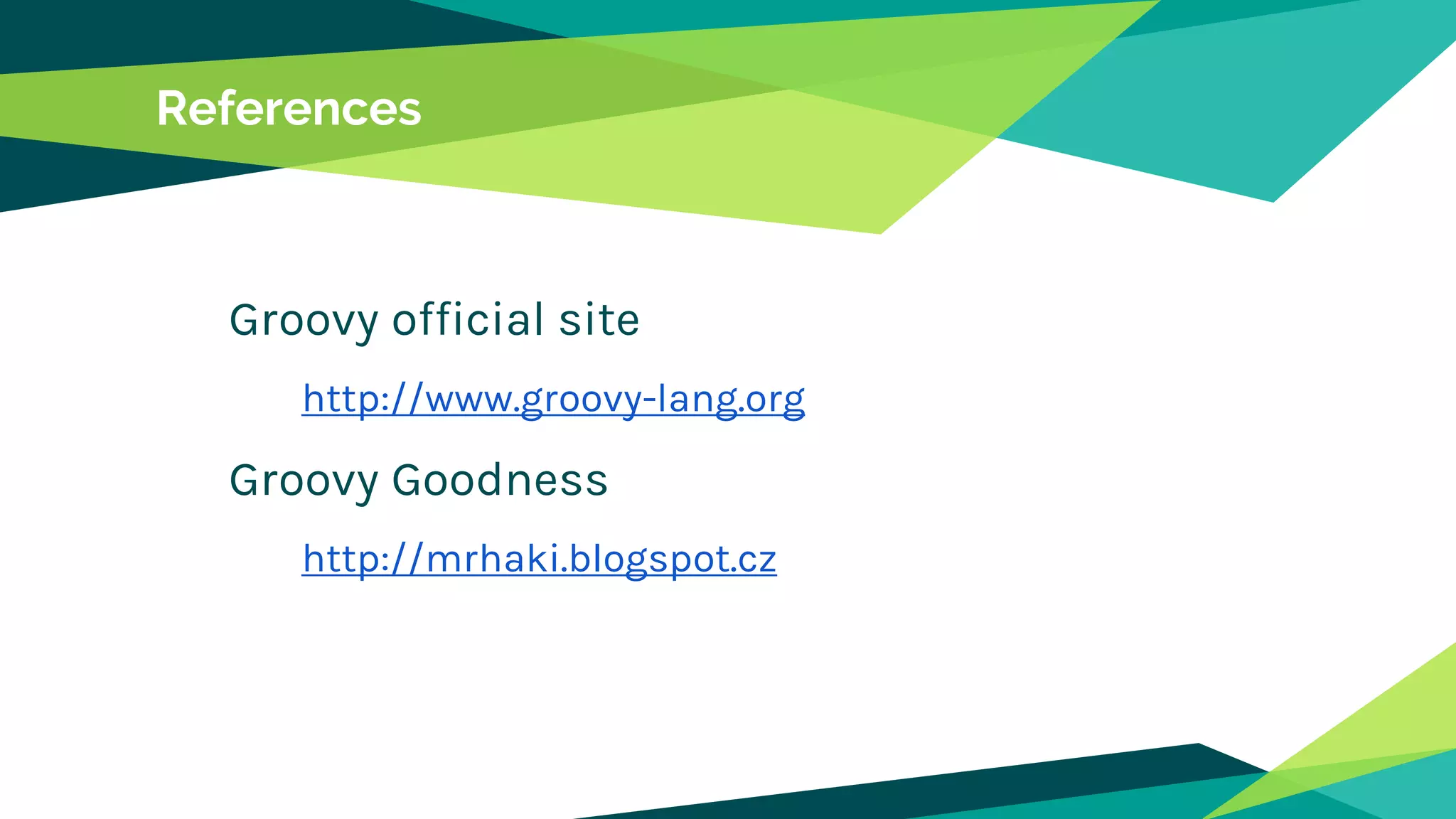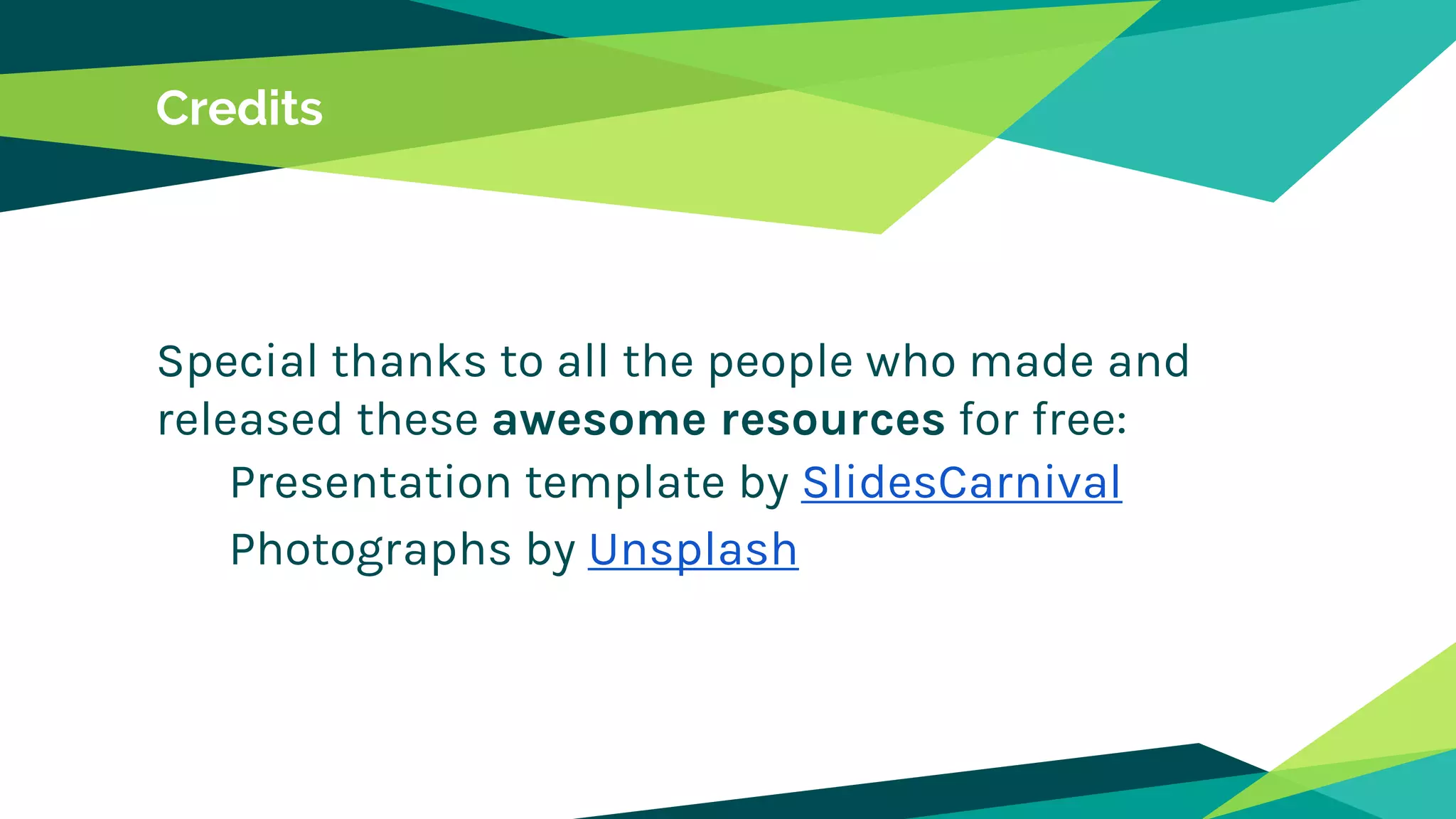Groovy is a dynamic language for the Java Virtual Machine that aims to provide an alternative to Java for those seeking a more concise and expressive syntax. It is compatible with Java and allows Java code to be called from Groovy and vice versa. Groovy reduces boilerplate code through features like optional typing, closures/lambdas, operator overloading, and dynamic method dispatch. It also provides concise syntax for lists, maps, ranges, and other common data structures.

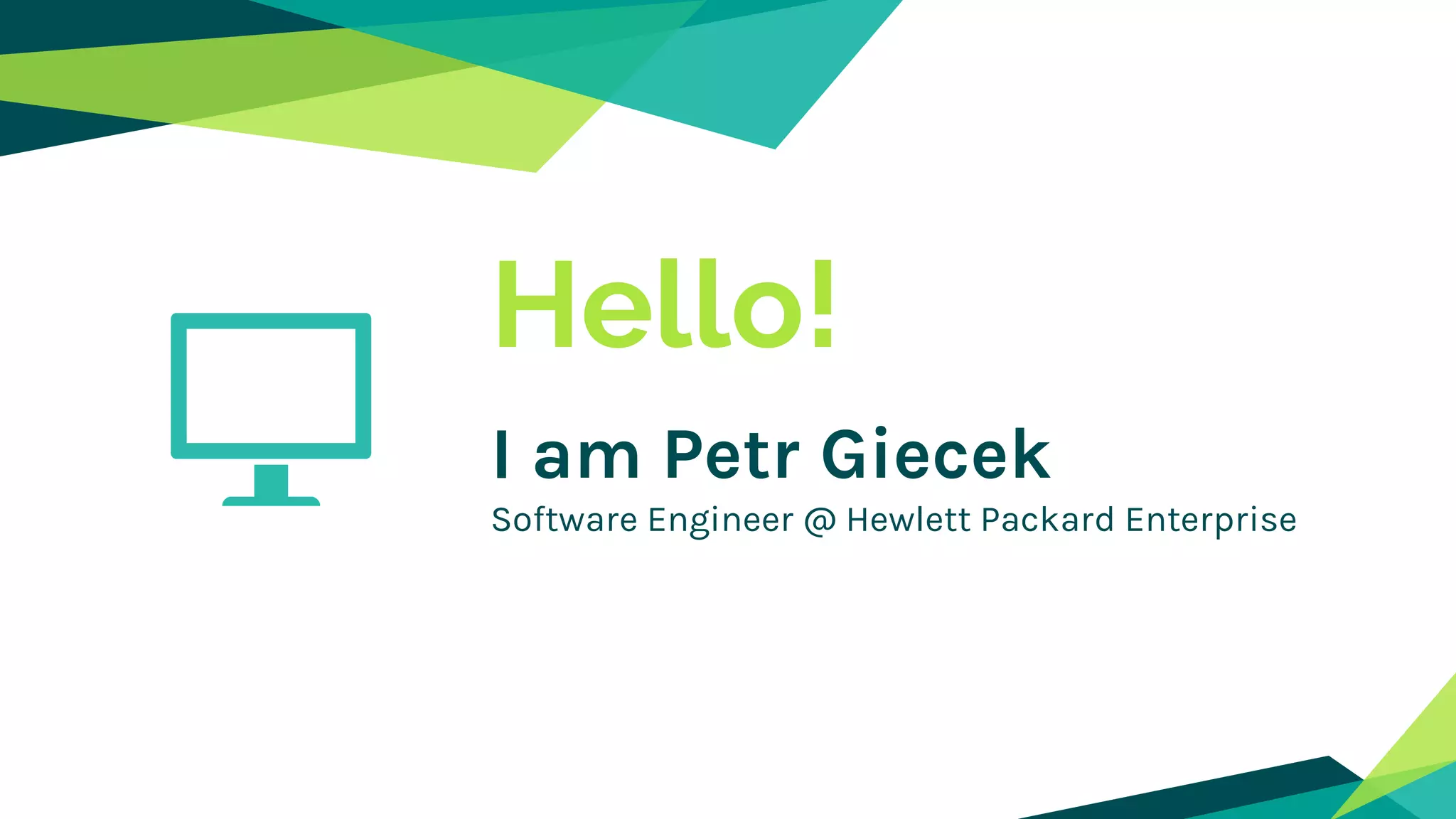

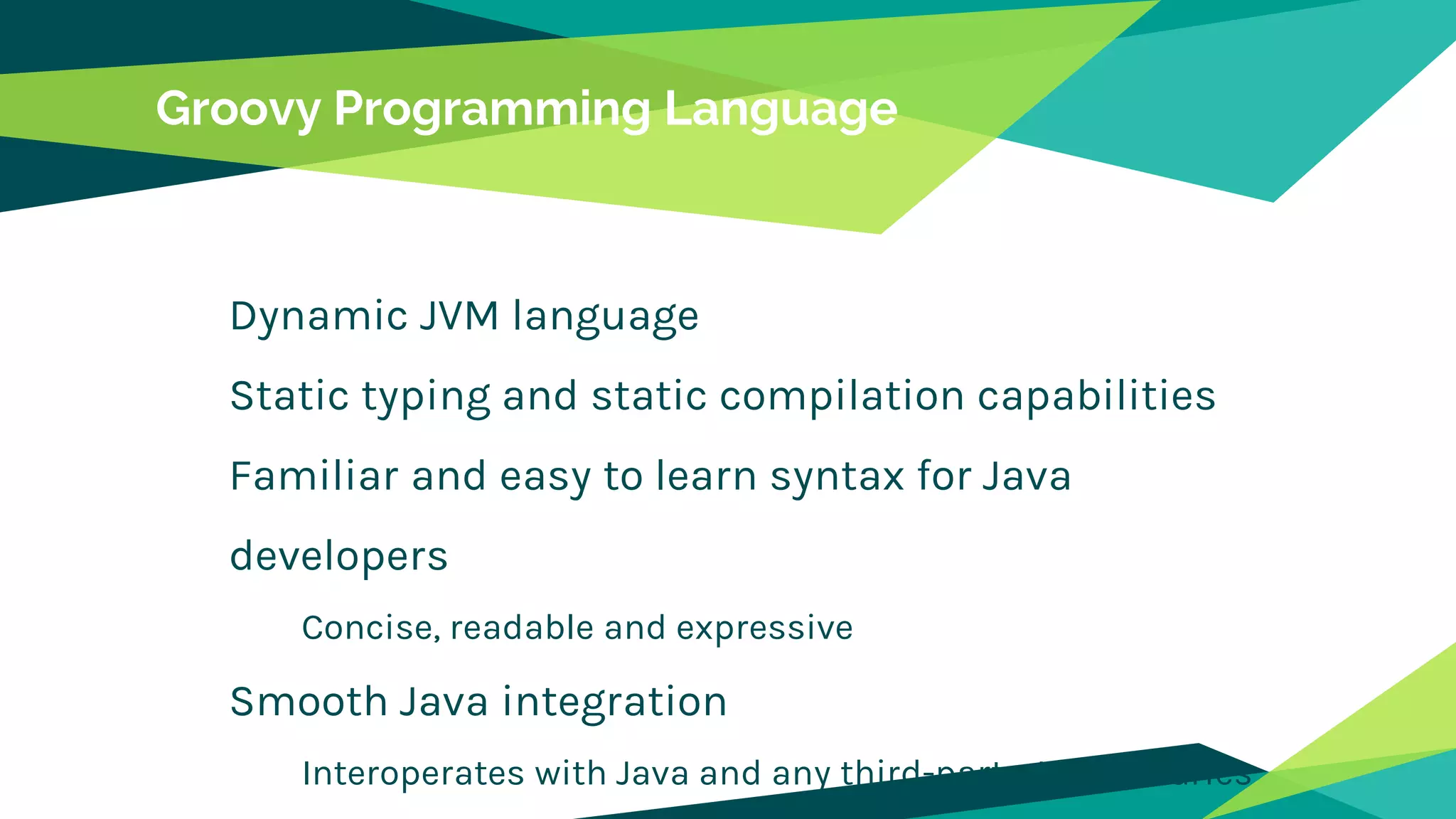

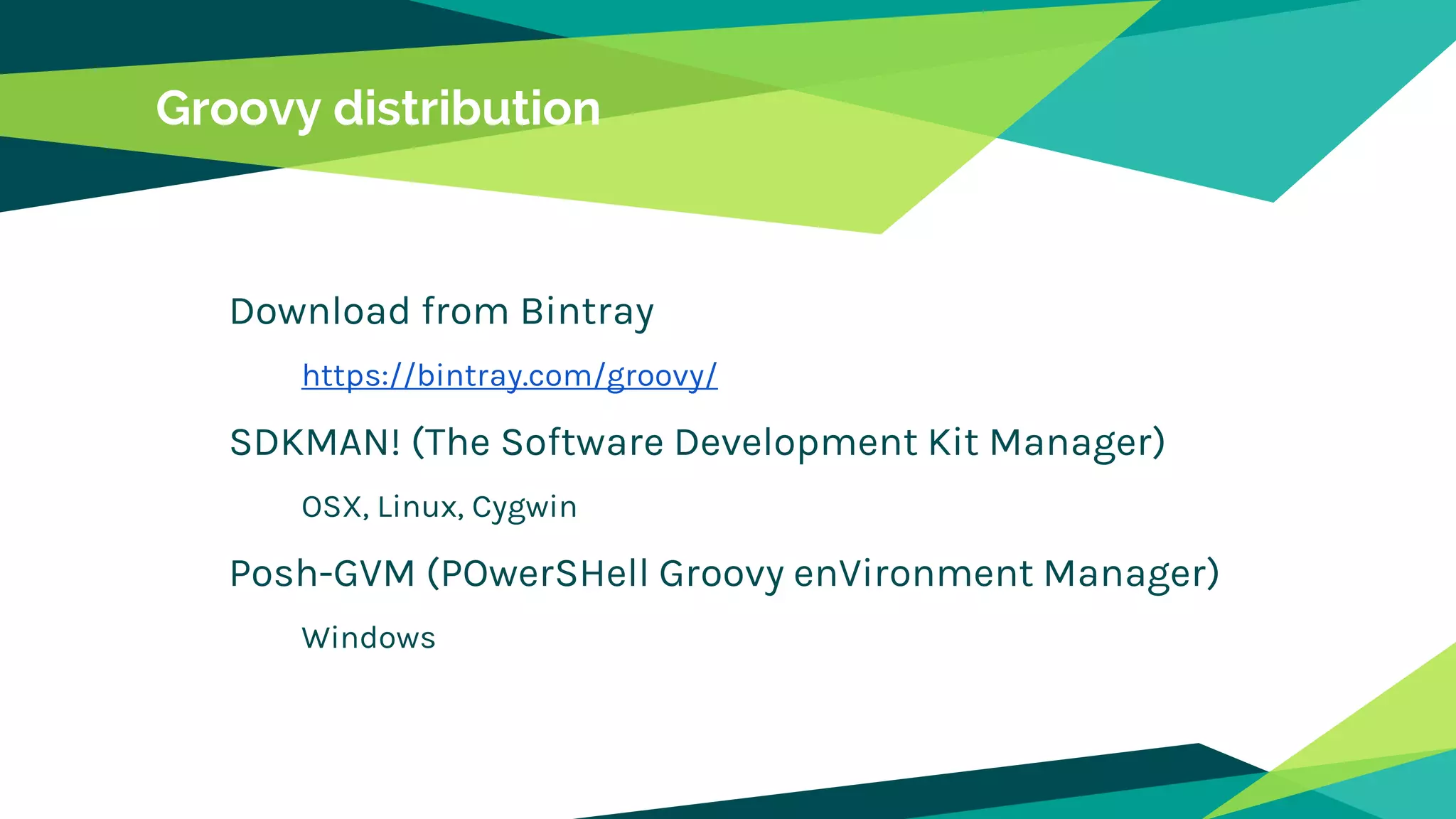
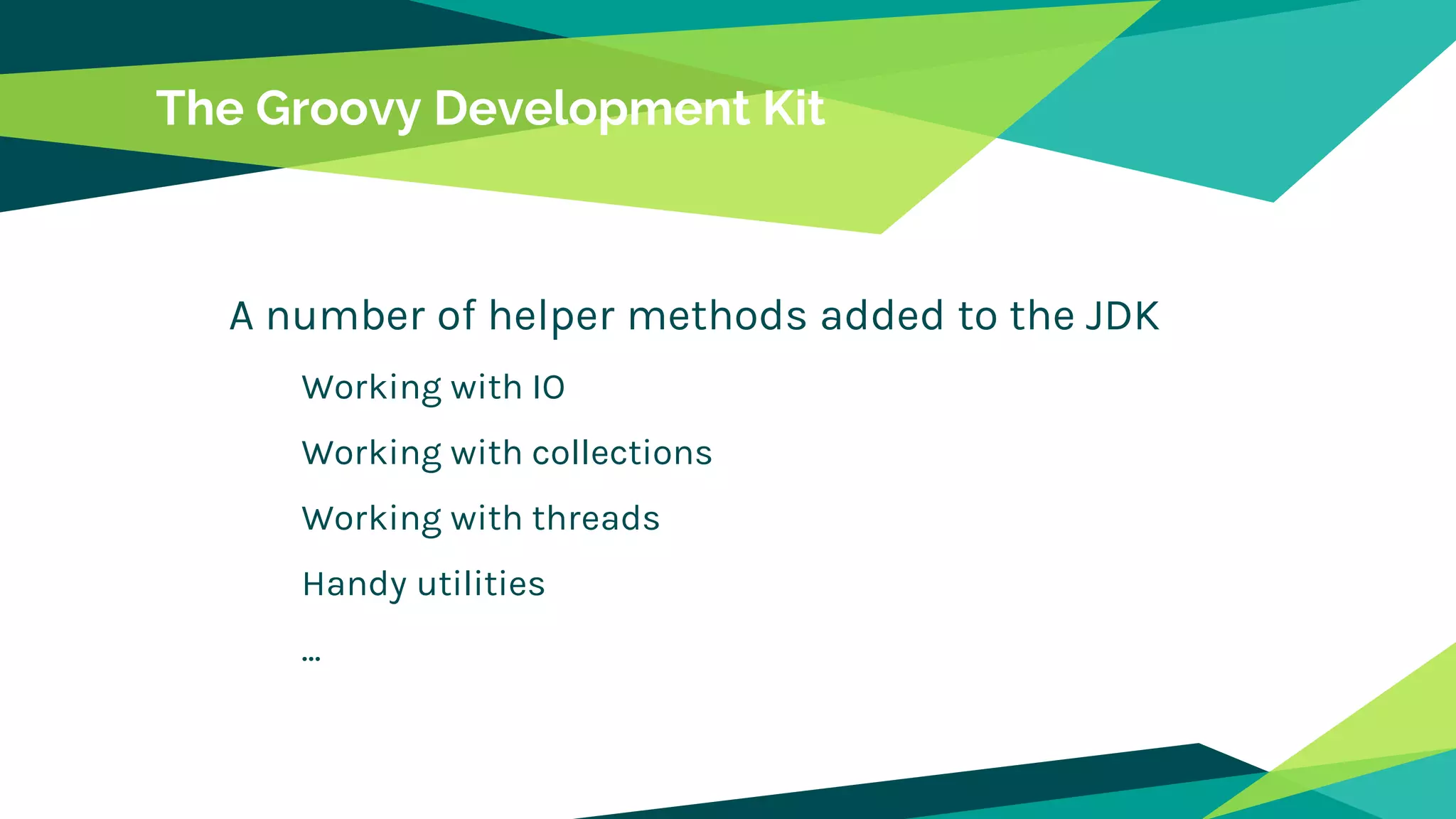

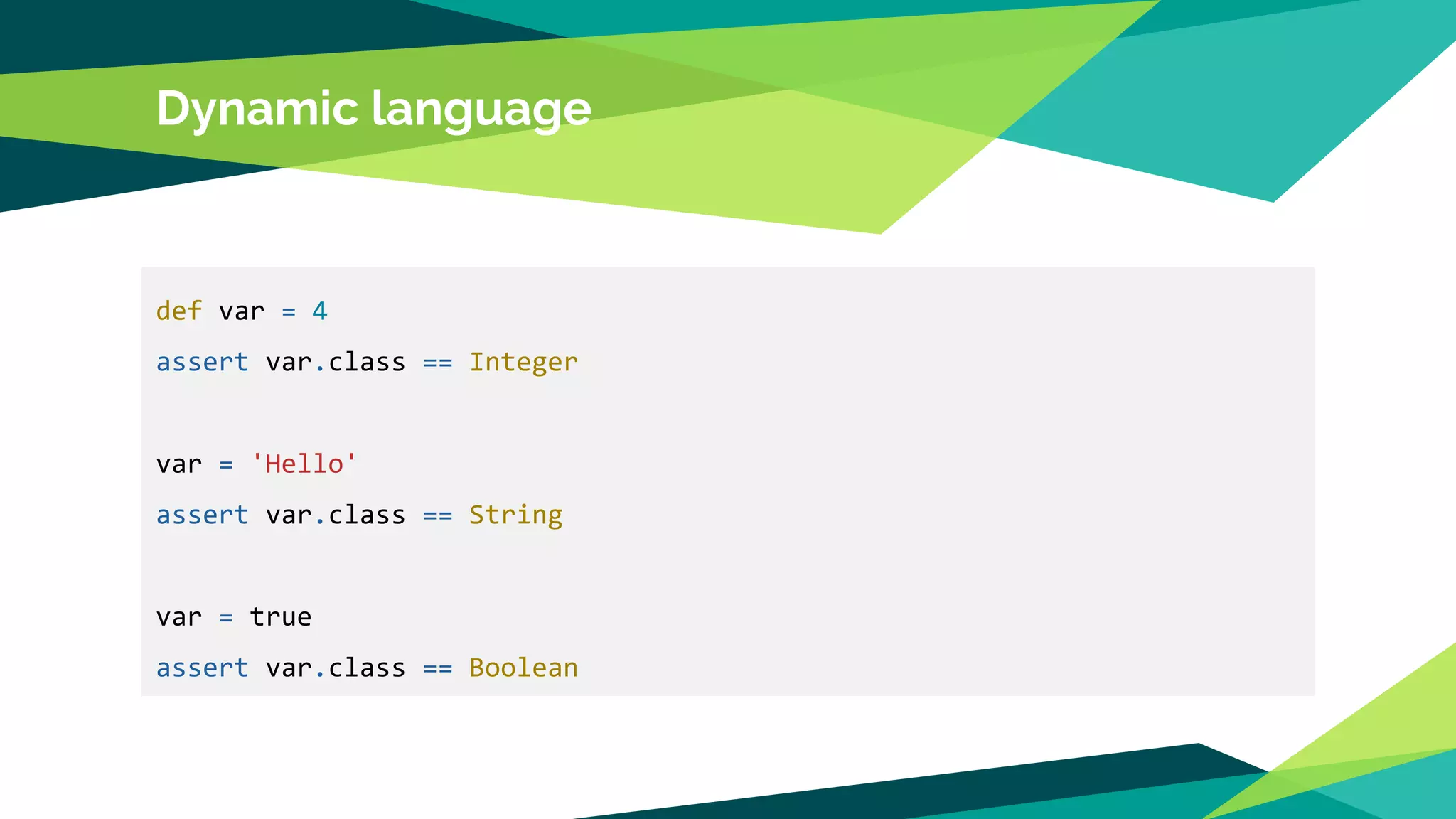
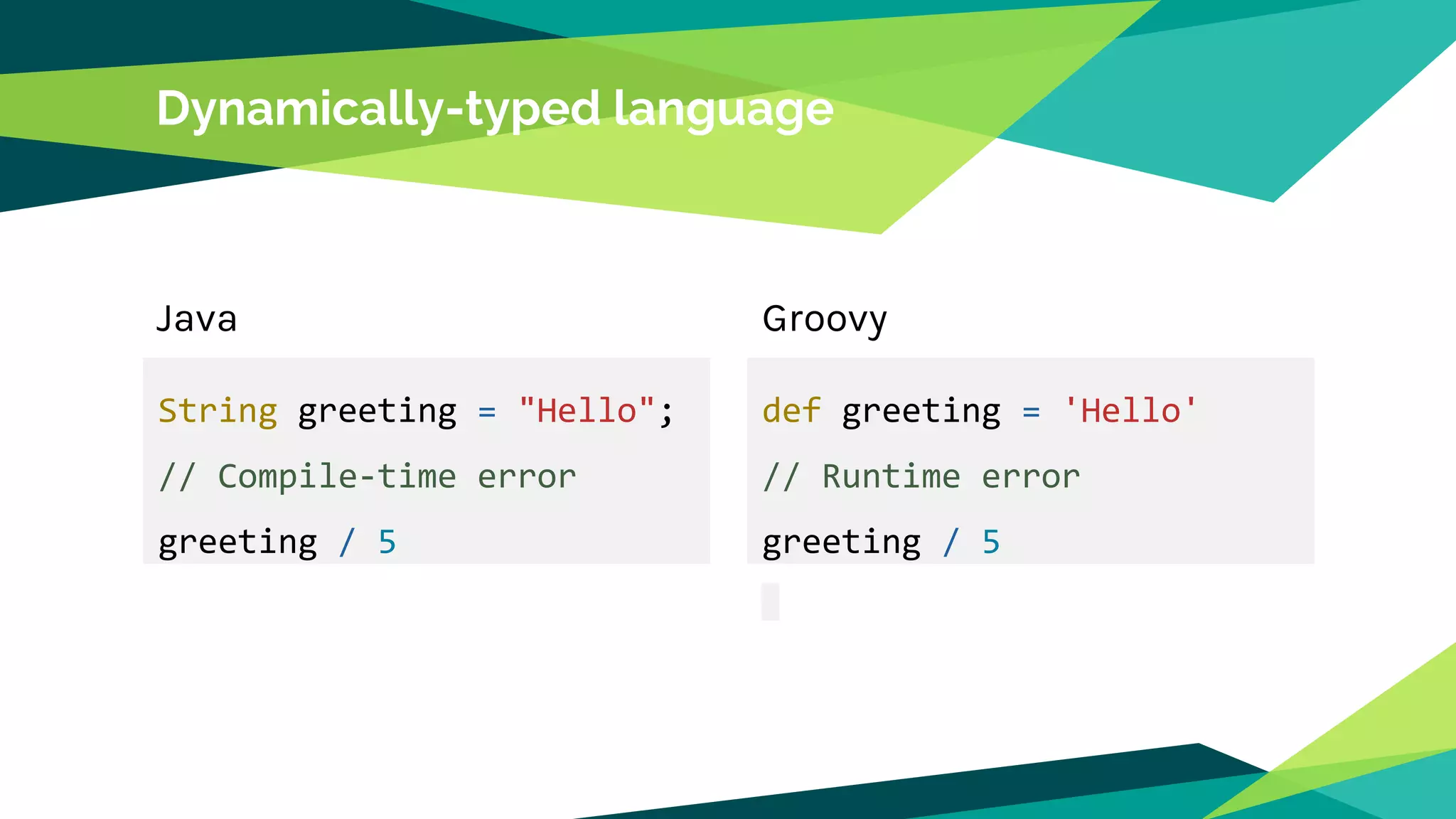
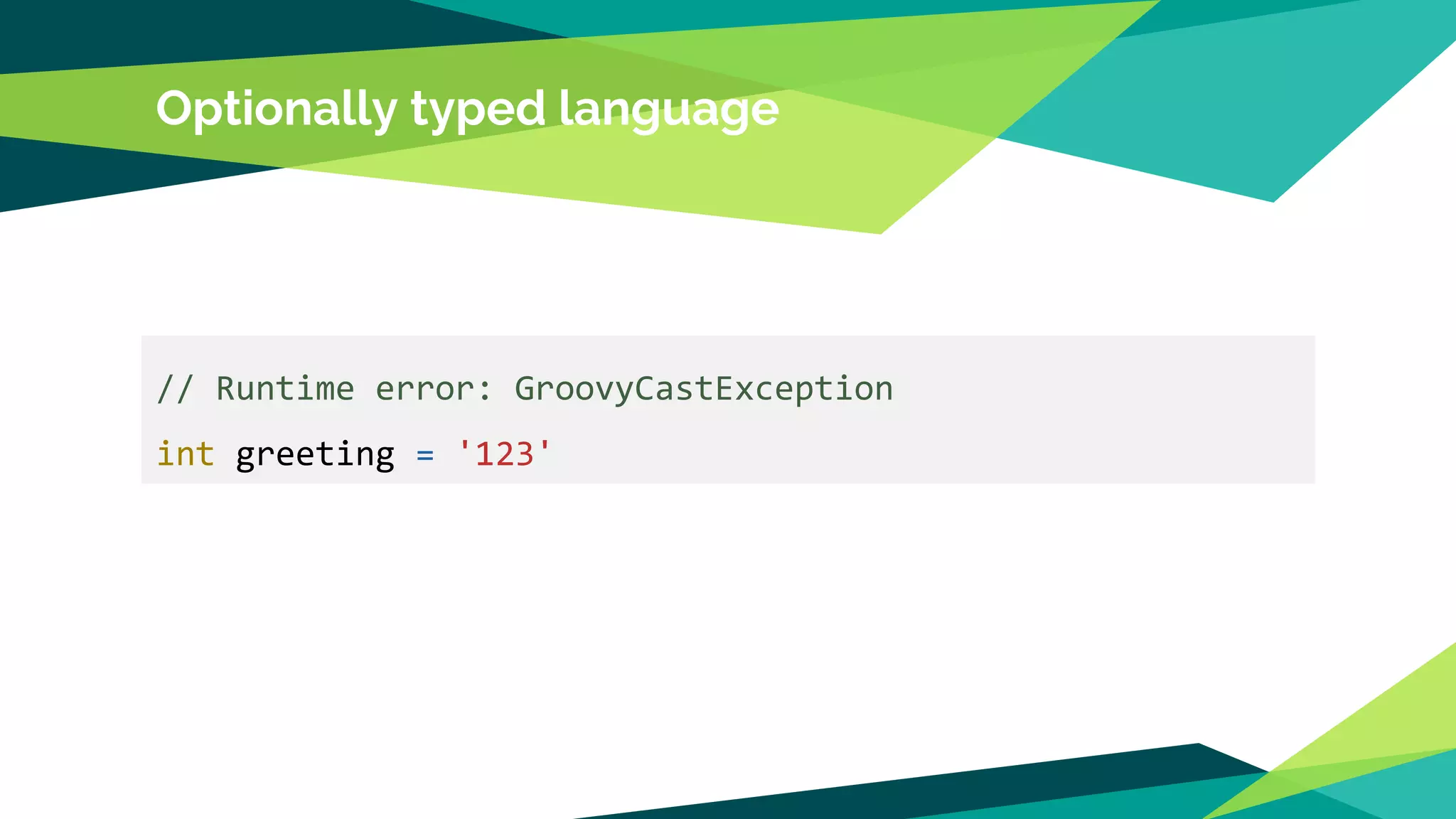

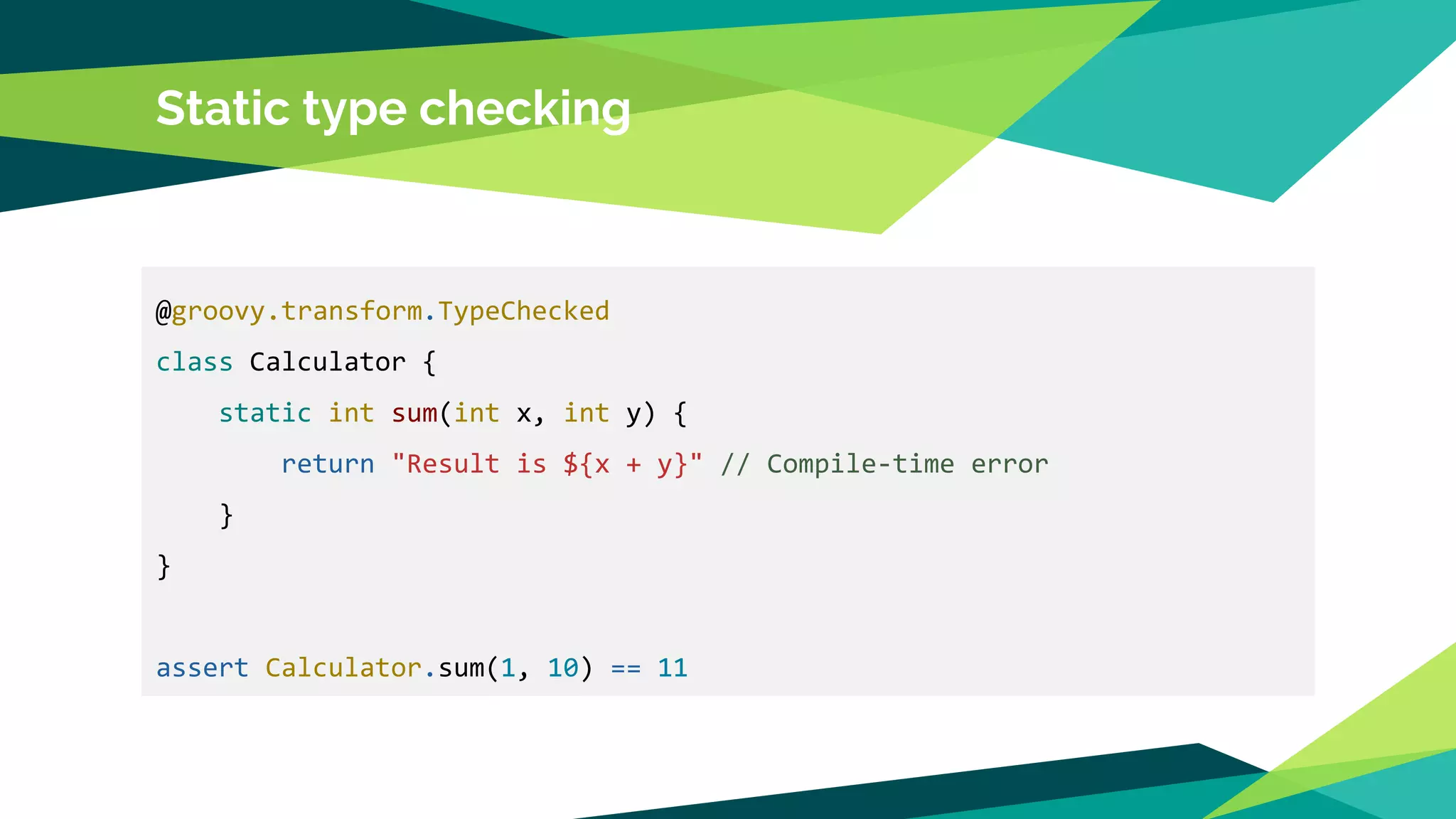
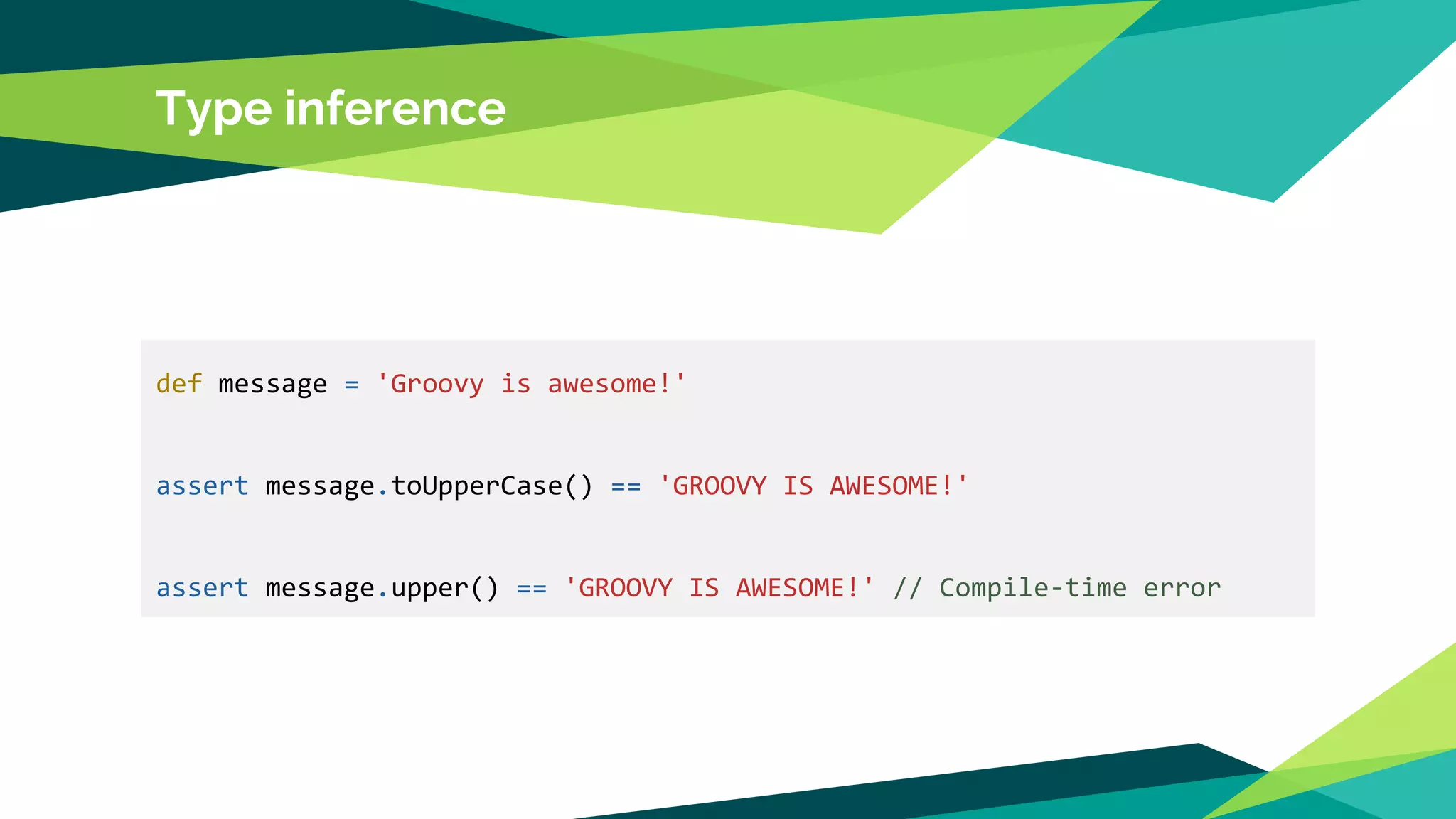
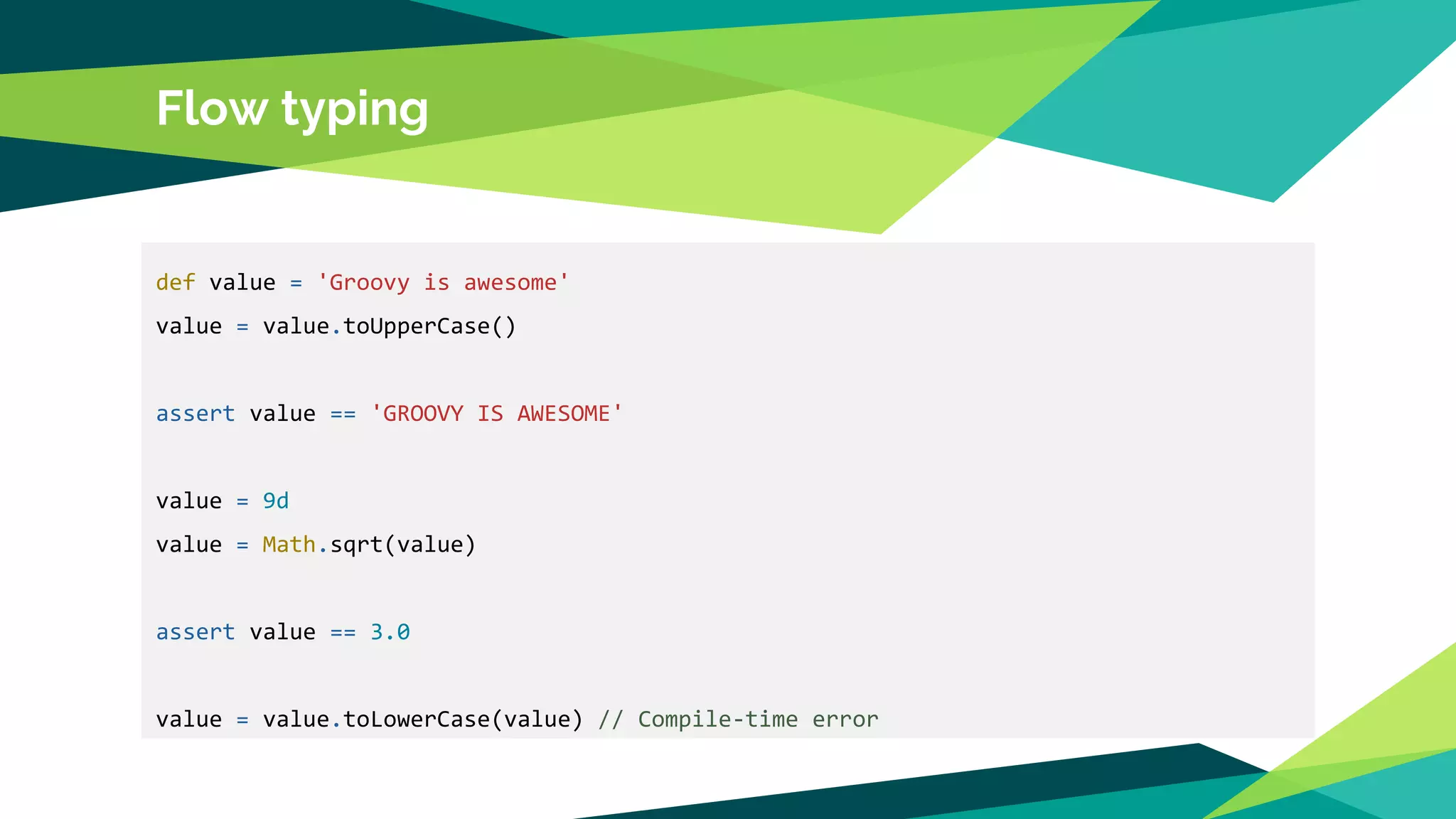
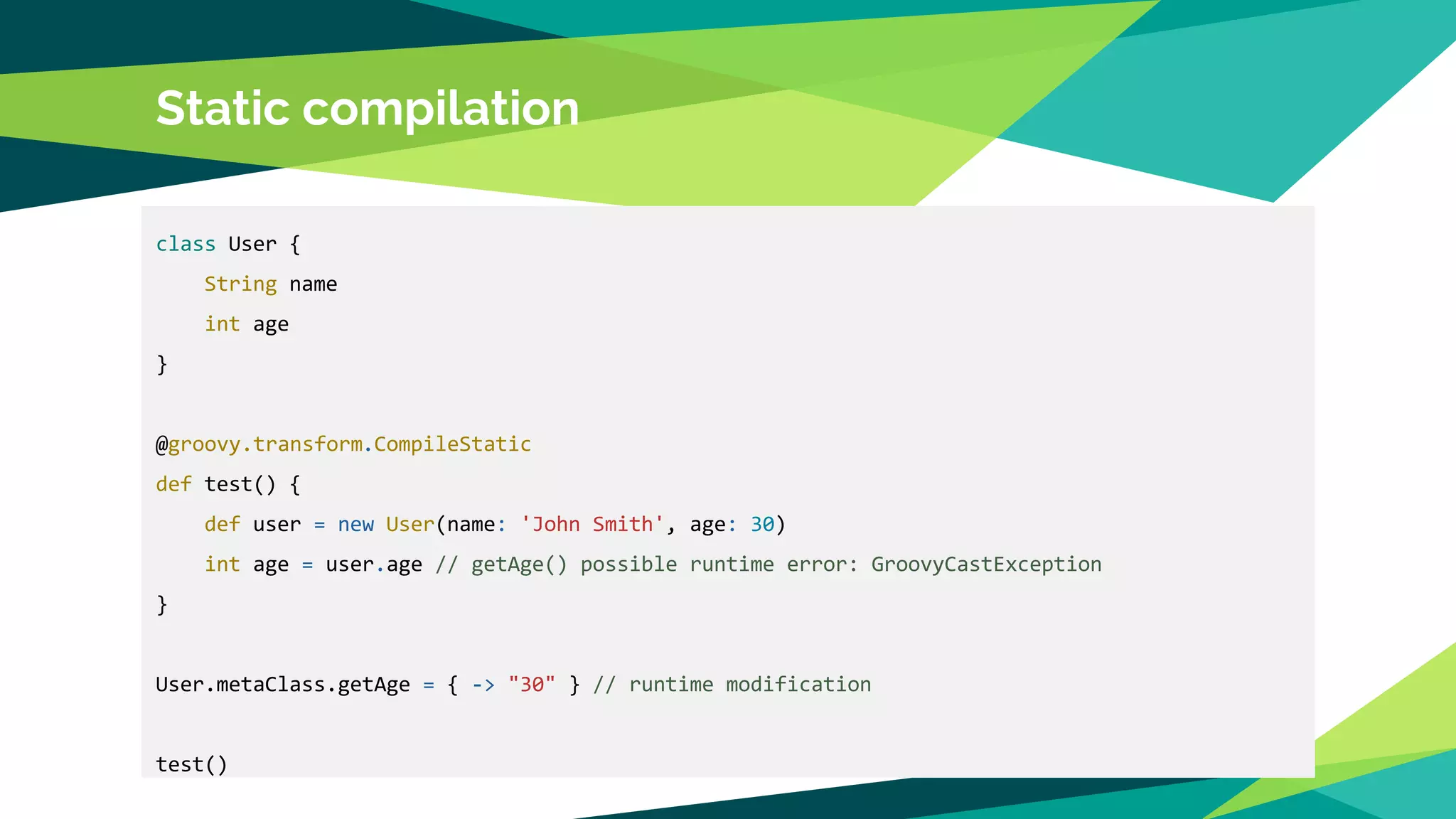


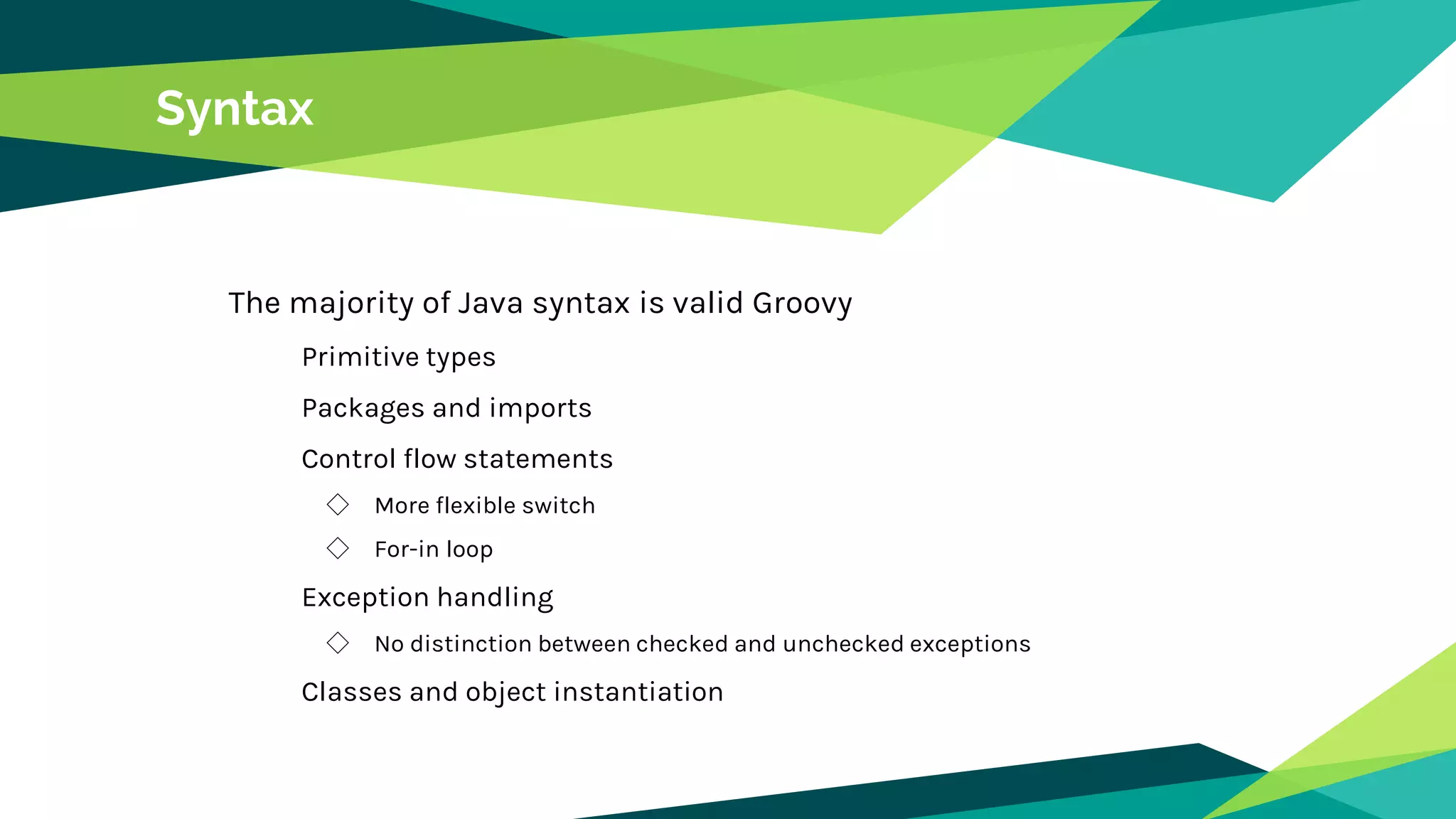
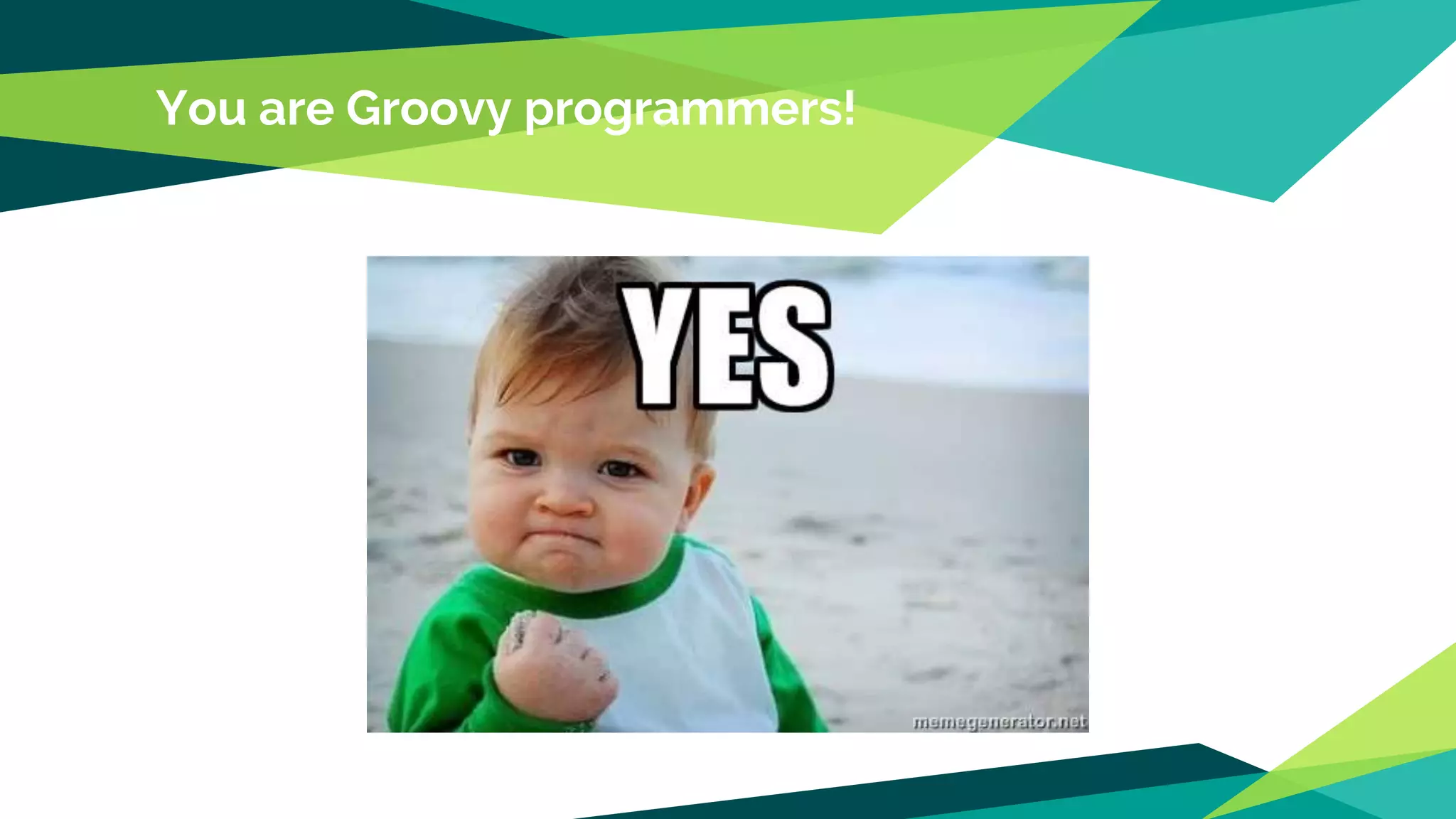

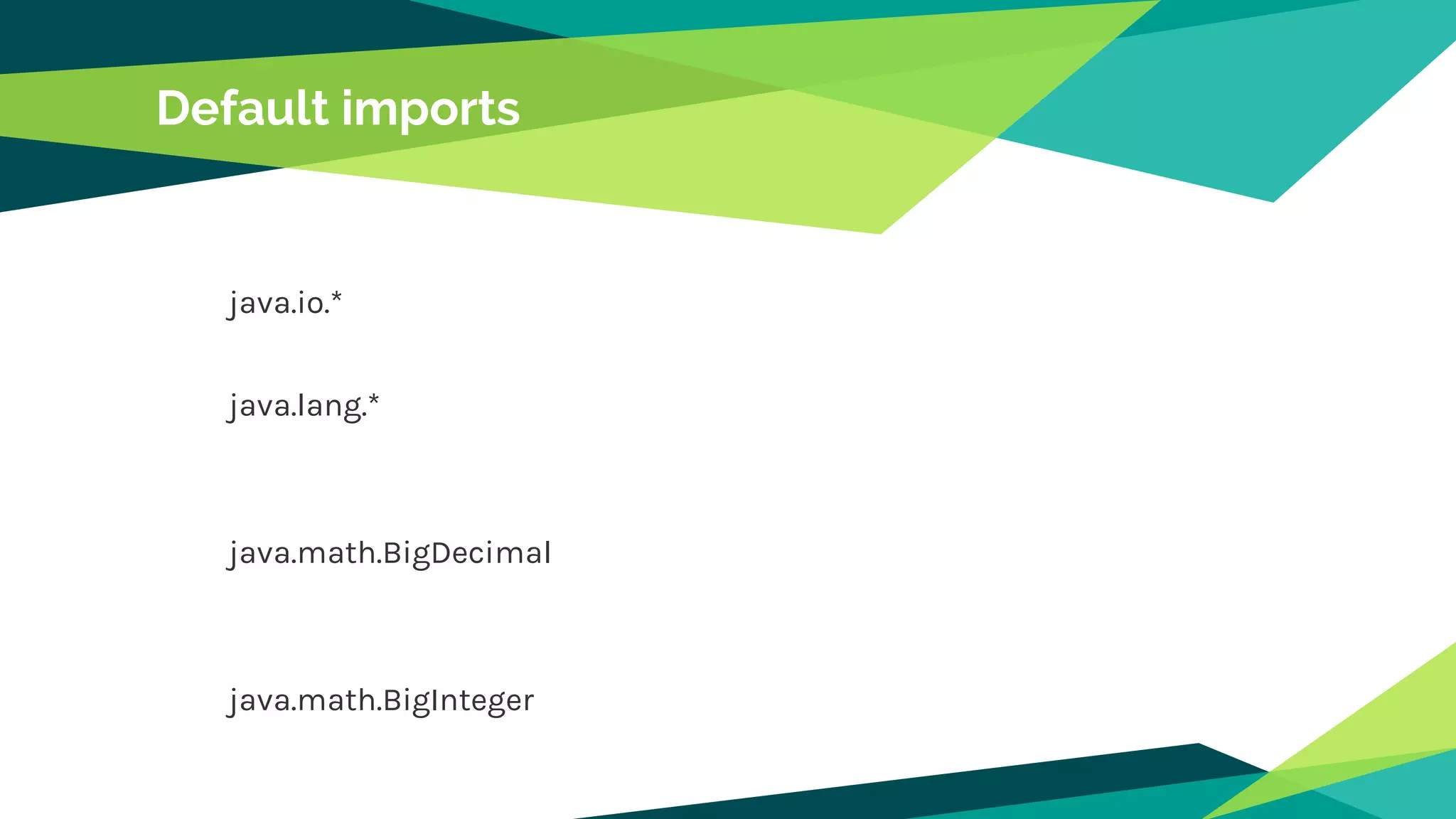

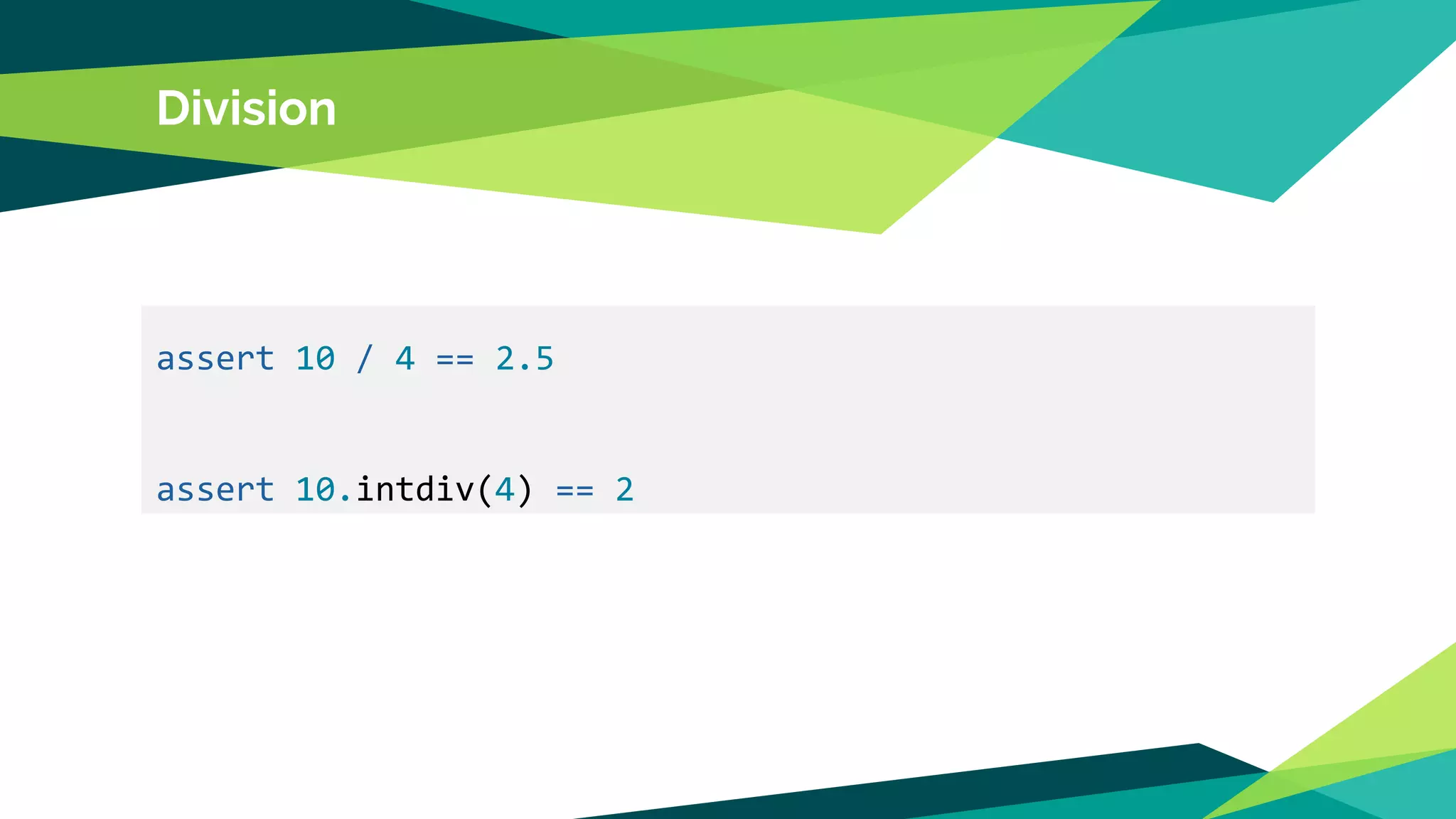

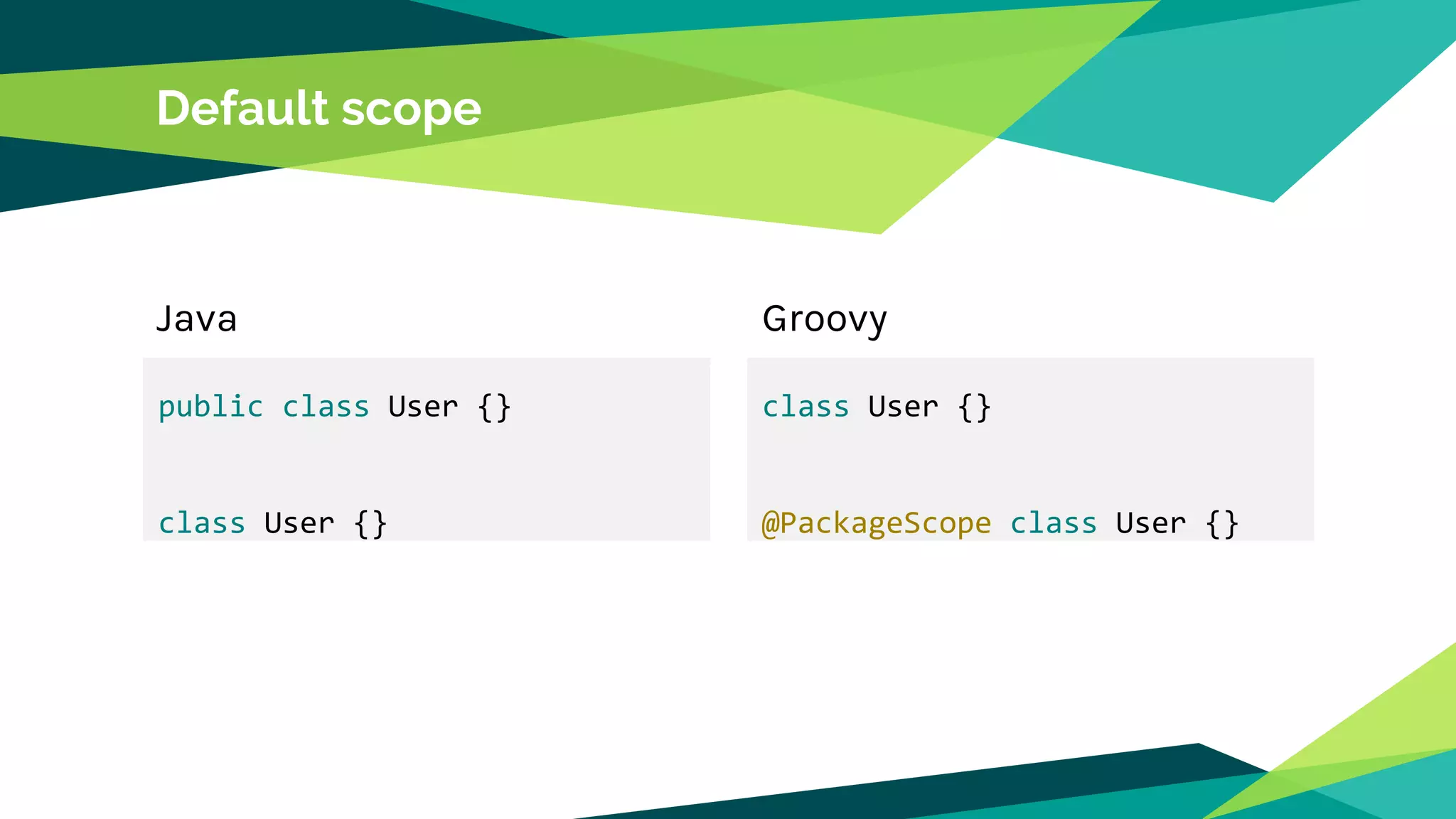
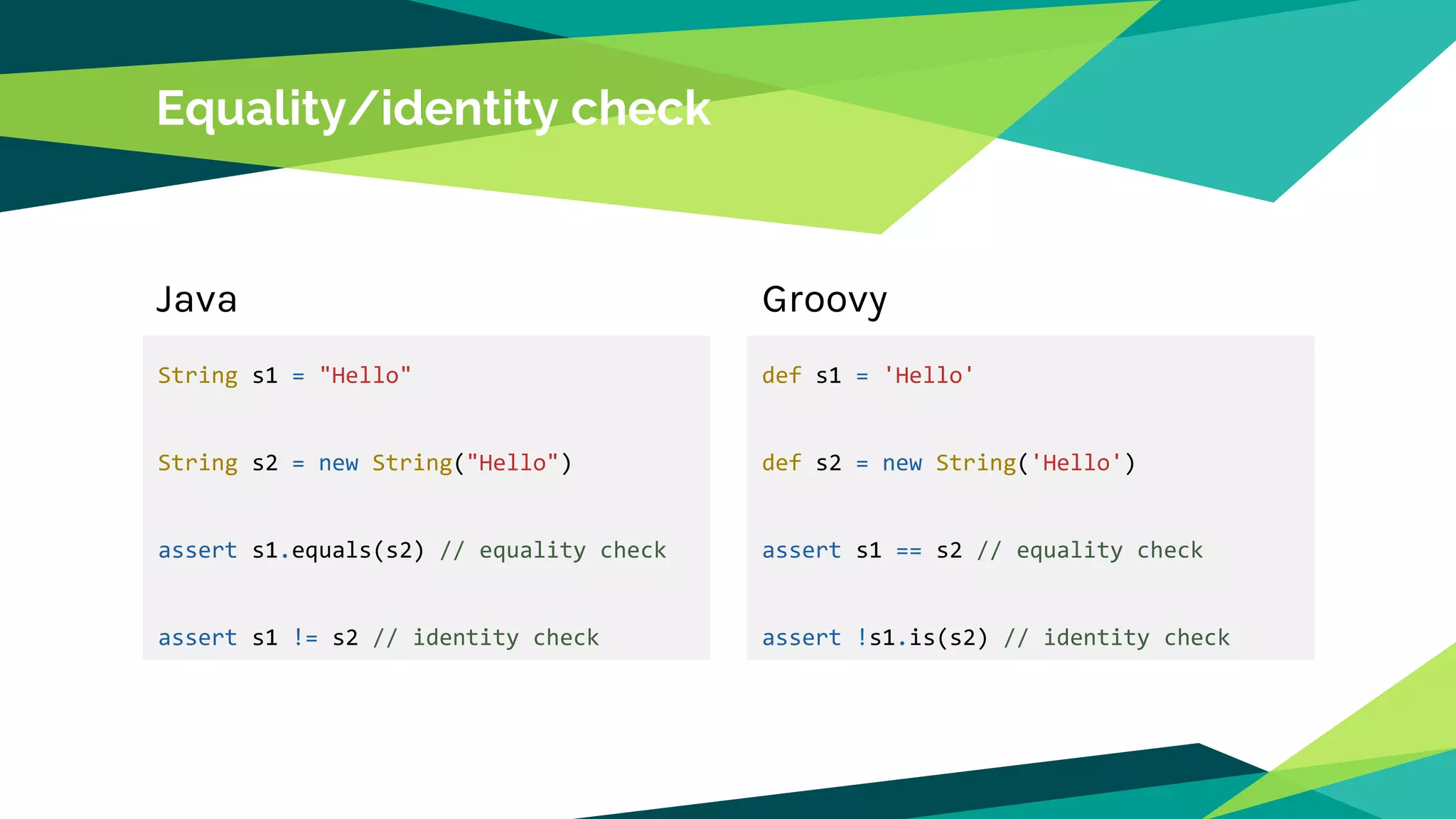
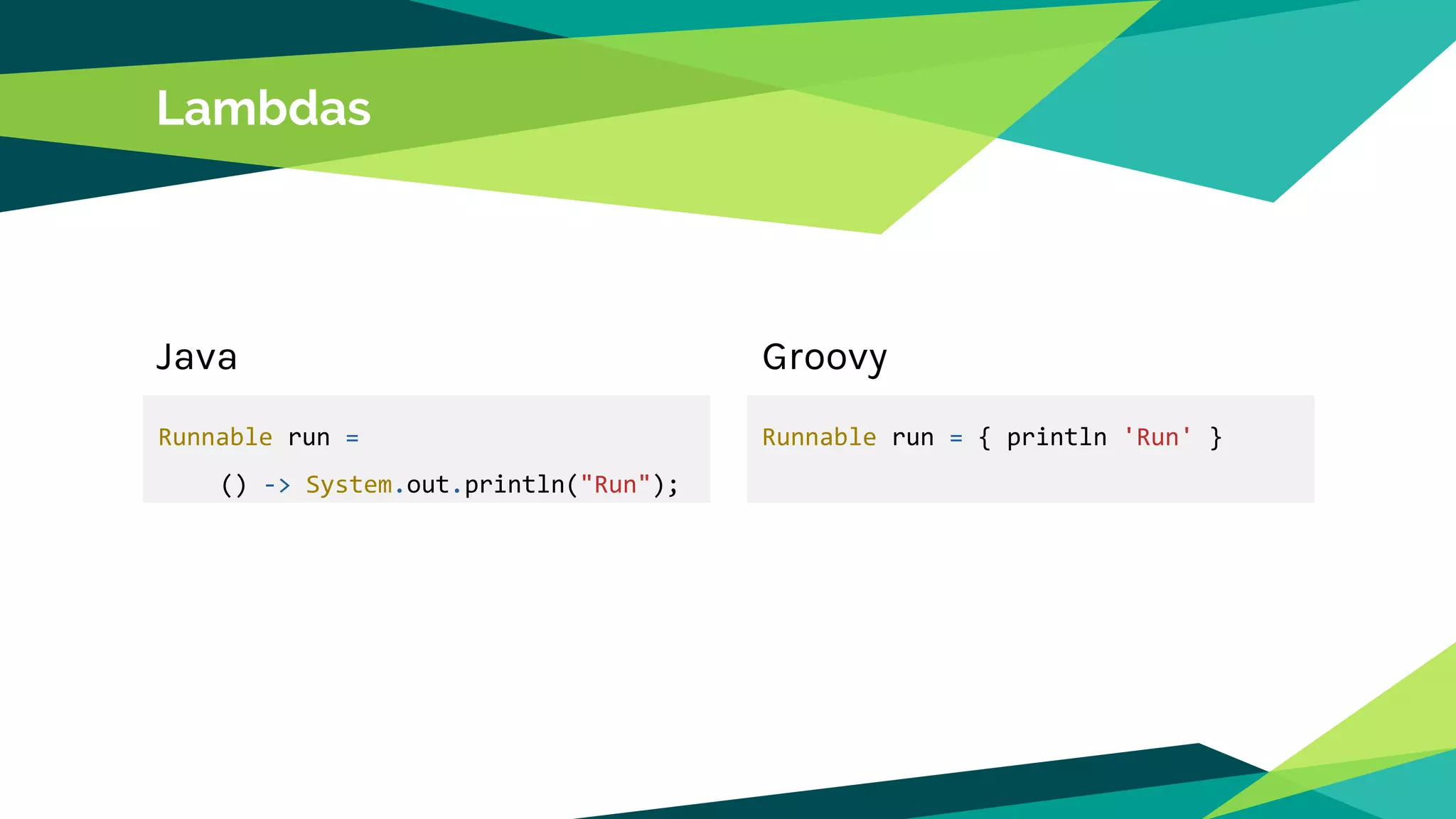

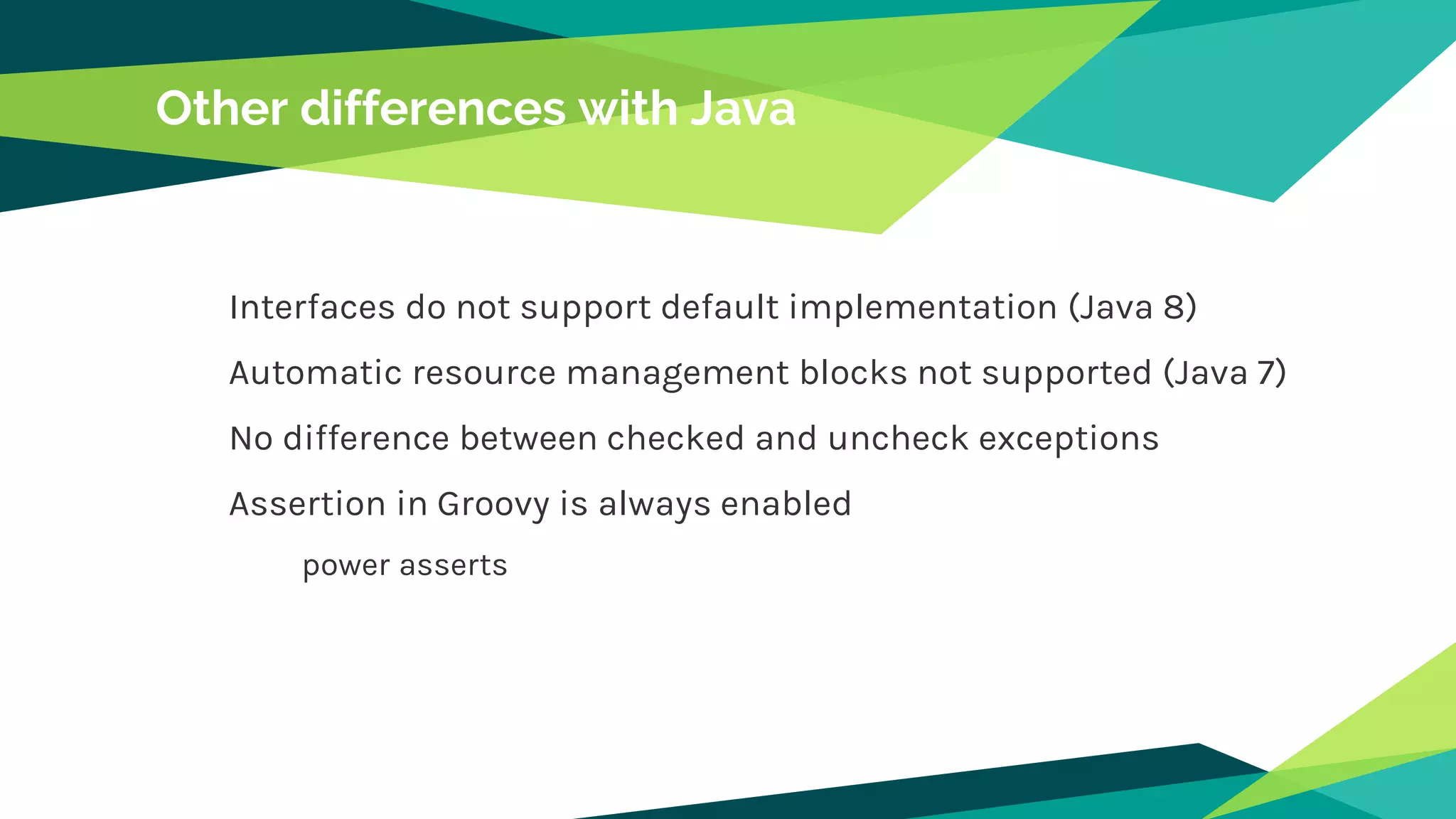





![The Groovy Truth
assert [1, 2, 3]
assert ![] // Empty collections and arrays
assert [1, 2, 3].iterator()
assert ![].iterator() // Iterators and Enumerations without further elements
assert [name: 'John']
assert ![:] // Empty maps
assert 'Hello Groovy'
assert !'' // Empty Strings, GStrings and CharSequences
assert 100
assert !0 // Zero number
assert new Object()
assert !null // Null object references](https://image.slidesharecdn.com/da6hohynt2hmt7v77ekq-signature-d9632c9f10e8b60ec43ad959cf7184c09dee865f14b2b7d2fcbac1db1f1a3025-poli-160517190211/75/Groovy-36-2048.jpg)
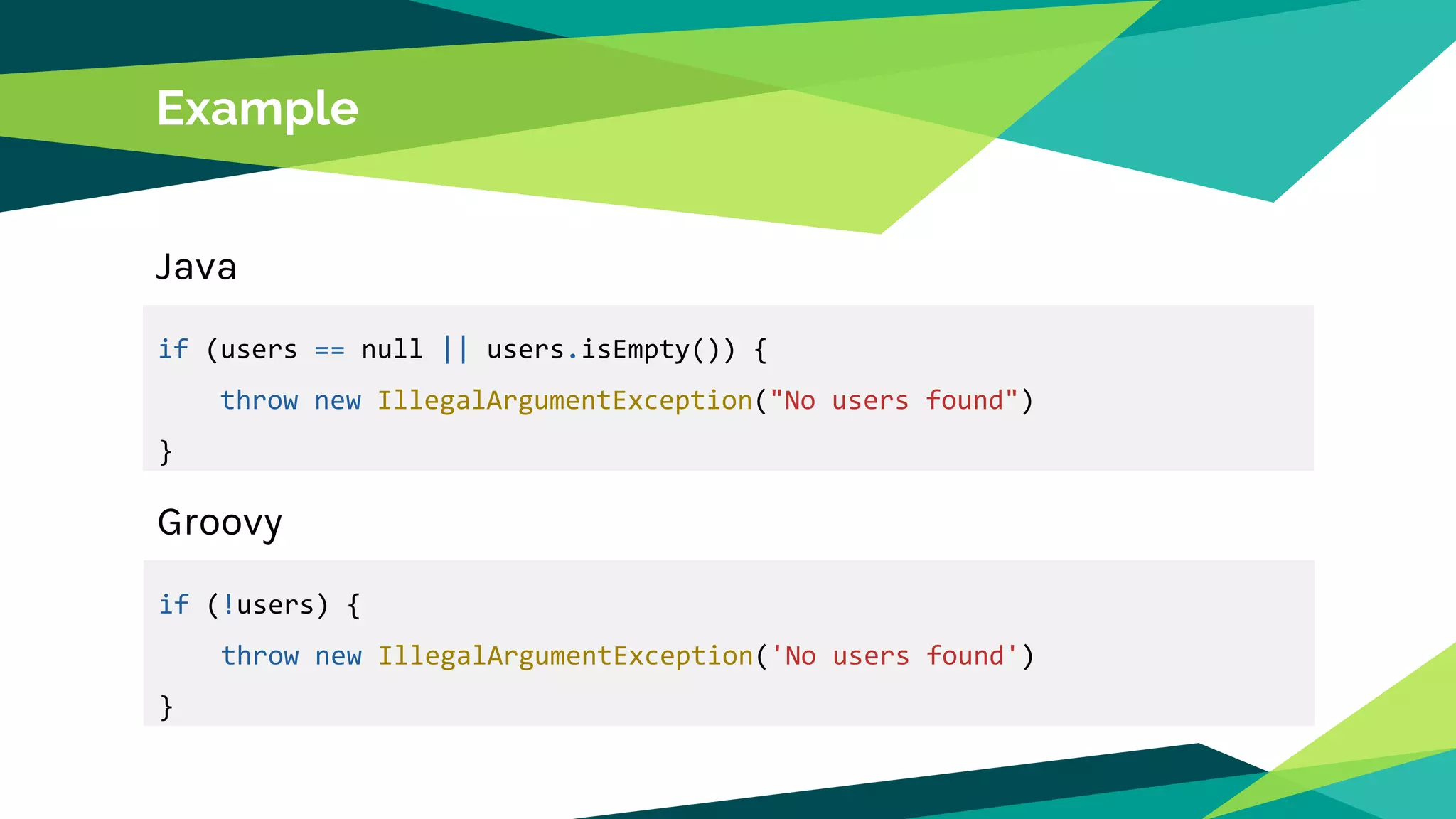
![Lists
def numbers = [1, 2, 3, 4]
assert numbers.class == ArrayList
def everything = [1, 2.5, true, 'Hello']
assert everything.class == ArrayList](https://image.slidesharecdn.com/da6hohynt2hmt7v77ekq-signature-d9632c9f10e8b60ec43ad959cf7184c09dee865f14b2b7d2fcbac1db1f1a3025-poli-160517190211/75/Groovy-38-2048.jpg)
![Lists (cont’d)
def numbers1 = [1, 2, 3, 4] as LinkedList
assert numbers1.class == LinkedList
LinkedList numbers2 = [1, 2, 3, 4]
assert numbers2.class == LinkedList](https://image.slidesharecdn.com/da6hohynt2hmt7v77ekq-signature-d9632c9f10e8b60ec43ad959cf7184c09dee865f14b2b7d2fcbac1db1f1a3025-poli-160517190211/75/Groovy-39-2048.jpg)
![Lists (cont’d)
def letters = ['a', 'b', 'c', 'd']
assert letters[0] == 'a'
assert letters[1] == 'b'
assert letters[-1] == 'd'
assert letters[-2] == 'c'
letters[2] = 'C'
assert letters[2] == 'C'
letters << 'e'
assert letters[-1] == 'e'
assert letters[1, 3] == ['b', 'd']
assert letters[2..4] == ['C', 'd', 'e']](https://image.slidesharecdn.com/da6hohynt2hmt7v77ekq-signature-d9632c9f10e8b60ec43ad959cf7184c09dee865f14b2b7d2fcbac1db1f1a3025-poli-160517190211/75/Groovy-40-2048.jpg)
![Arrays
def languages = ['Java', 'Groovy', 'Scala'] as String[]
assert languages instanceof String[]
int[] numbers = [1, 2, 3]
assert numbers instanceof int[]](https://image.slidesharecdn.com/da6hohynt2hmt7v77ekq-signature-d9632c9f10e8b60ec43ad959cf7184c09dee865f14b2b7d2fcbac1db1f1a3025-poli-160517190211/75/Groovy-41-2048.jpg)
![Maps
def colors = [red: '#FF0000', green: '#00FF00', blue: '#0000FF']
assert colors['red'] == '#FF0000'
assert colors.green == '#00FF00'
colors['pink'] = '#FF00FF'
colors.yellow = '#FFFF00'
assert colors.pink == '#FF00FF'
assert colors['yellow'] == '#FFFF00'
assert colors.getClass() == LinkedHashMap](https://image.slidesharecdn.com/da6hohynt2hmt7v77ekq-signature-d9632c9f10e8b60ec43ad959cf7184c09dee865f14b2b7d2fcbac1db1f1a3025-poli-160517190211/75/Groovy-42-2048.jpg)
![Ranges
assert (0..5) == [0, 1, 2, 3, 4, 5]
assert ('a'..<'f') == ['a', 'b', 'c', 'd', 'e']
assert (2..-2) == [2, 1, 0, -1, -2]
assert (0..10).step(2) == [0, 2, 4, 6, 8, 10]
assert (0..5) instanceof Range
assert (0..5) instanceof List](https://image.slidesharecdn.com/da6hohynt2hmt7v77ekq-signature-d9632c9f10e8b60ec43ad959cf7184c09dee865f14b2b7d2fcbac1db1f1a3025-poli-160517190211/75/Groovy-43-2048.jpg)




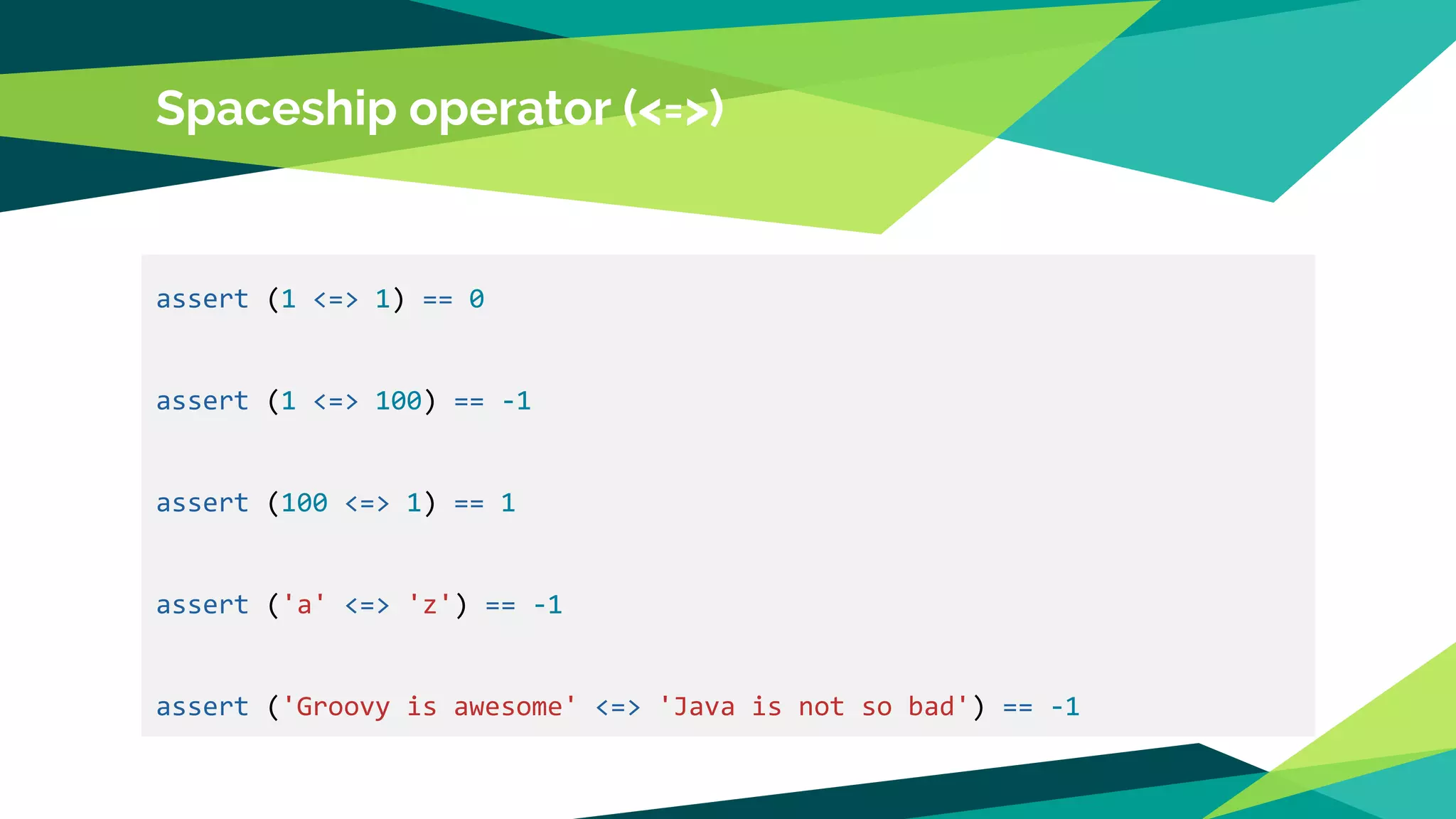
![Spread operator (*.)
class User {
String name
int age
}
def users = [
new User(name: 'John', age: 33),
new User(name: 'George', age: 35),
null]
assert users*.name == ['John', 'George', null]](https://image.slidesharecdn.com/da6hohynt2hmt7v77ekq-signature-d9632c9f10e8b60ec43ad959cf7184c09dee865f14b2b7d2fcbac1db1f1a3025-poli-160517190211/75/Groovy-49-2048.jpg)
![Spreading method arguments
int add(int a, int b, int c, int d) {
a + b + c + d
}
def args = [1, 2, 7, 10]
assert add(*args) == 20
args = [1, 2, 7]
assert add(*args, 10) == 20](https://image.slidesharecdn.com/da6hohynt2hmt7v77ekq-signature-d9632c9f10e8b60ec43ad959cf7184c09dee865f14b2b7d2fcbac1db1f1a3025-poli-160517190211/75/Groovy-50-2048.jpg)
![Operator overloading
+ a.plus(b)
- a.minus(b)
* a.multiply(b)
/ a.div(b)
% a.mod(b)
** a.power(b)
| a.or(b)
& a.and(b)
^ a.xor(b)
as a.asType(b)
a() a.call()
a[b] a.getAt(b)
a[b] = c a.putAt(b, c)
in a.isCase(b)
<< a.leftShift(b)
>> a.rightShift(b)
++ a.next()
-- a.previous(b)](https://image.slidesharecdn.com/da6hohynt2hmt7v77ekq-signature-d9632c9f10e8b60ec43ad959cf7184c09dee865f14b2b7d2fcbac1db1f1a3025-poli-160517190211/75/Groovy-51-2048.jpg)

![List to type coercion
class User {
String name
int age
User(String name, int age) {
this.name = name
this.age = age
}
}
def user1 = ['John', 30] as User
User user2 = ['John', 30]](https://image.slidesharecdn.com/da6hohynt2hmt7v77ekq-signature-d9632c9f10e8b60ec43ad959cf7184c09dee865f14b2b7d2fcbac1db1f1a3025-poli-160517190211/75/Groovy-53-2048.jpg)
![Map to type coercion
def map
map = [
i: 10,
hasNext: { map.i > 0 },
next: { map.i-- },
]
def iter = map as Iterator
assert iter.collect { it } == [10, 9, 8, 7, 6, 5, 4, 3, 2, 1]](https://image.slidesharecdn.com/da6hohynt2hmt7v77ekq-signature-d9632c9f10e8b60ec43ad959cf7184c09dee865f14b2b7d2fcbac1db1f1a3025-poli-160517190211/75/Groovy-54-2048.jpg)

![Constructors (positional arguments)
// Constructor invocation with new keyword
def user1 = new User('John', 30)
// Using coercion with as keyword
def user2 = ['John', 30] as User
// Using coercion in assignment
User user3 = ['John', 30]](https://image.slidesharecdn.com/da6hohynt2hmt7v77ekq-signature-d9632c9f10e8b60ec43ad959cf7184c09dee865f14b2b7d2fcbac1db1f1a3025-poli-160517190211/75/Groovy-56-2048.jpg)
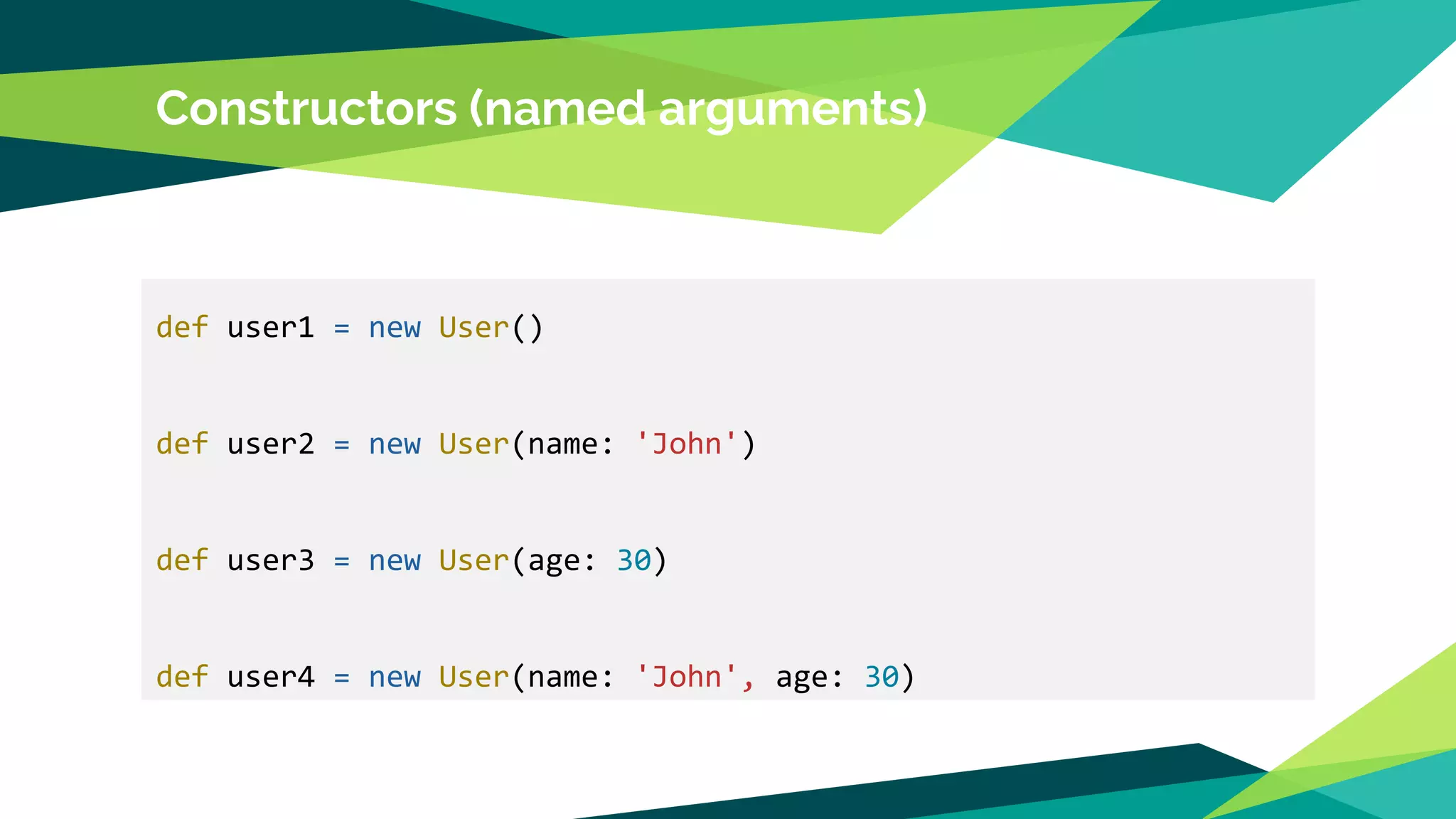

![Named arguments
def createUser(Map args) { new User(args.name, args['age']) }
def user = createUser(name: 'John', age: 30)
assert user.name == 'John'
assert user.age == 30](https://image.slidesharecdn.com/da6hohynt2hmt7v77ekq-signature-d9632c9f10e8b60ec43ad959cf7184c09dee865f14b2b7d2fcbac1db1f1a3025-poli-160517190211/75/Groovy-59-2048.jpg)
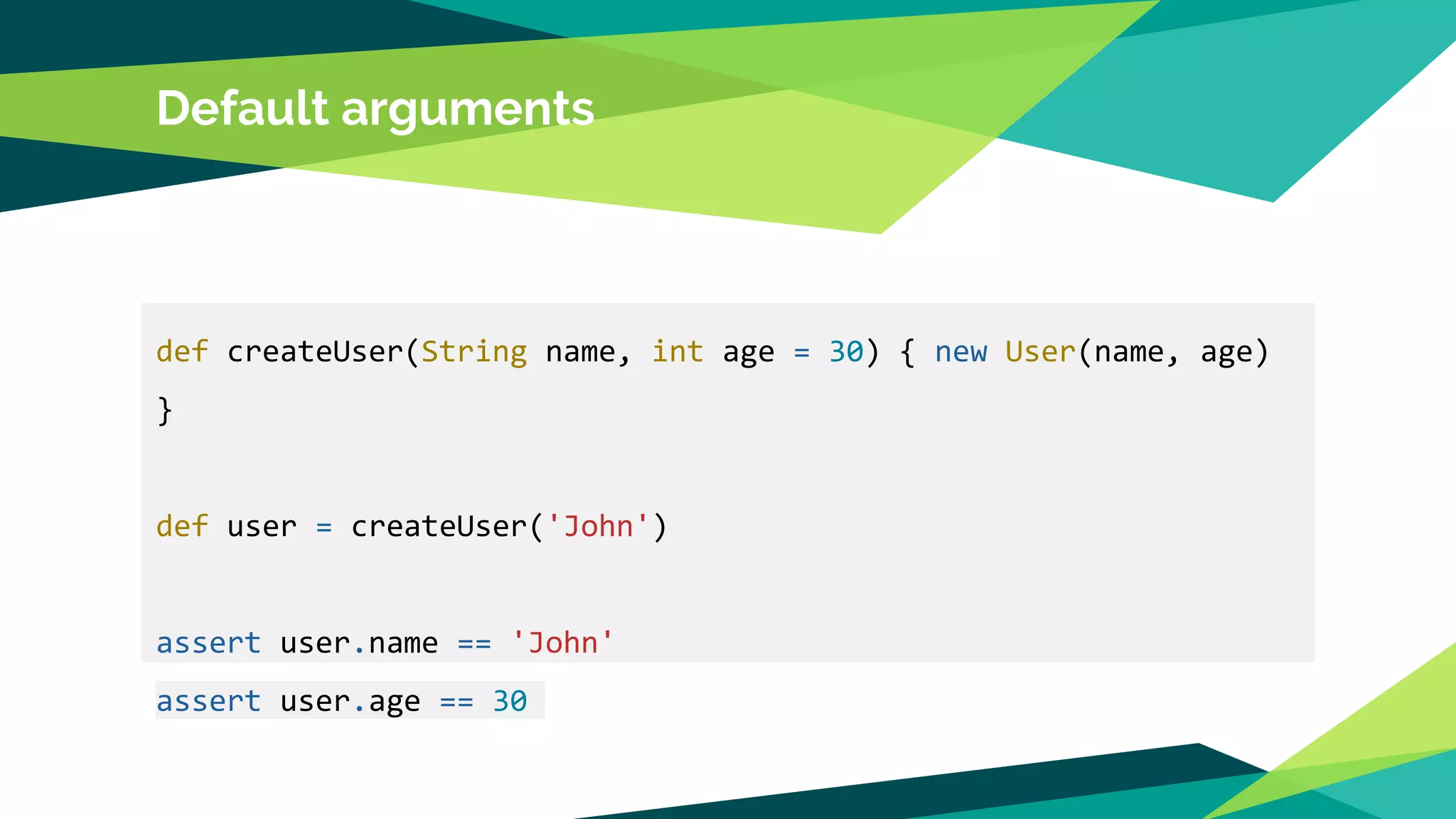
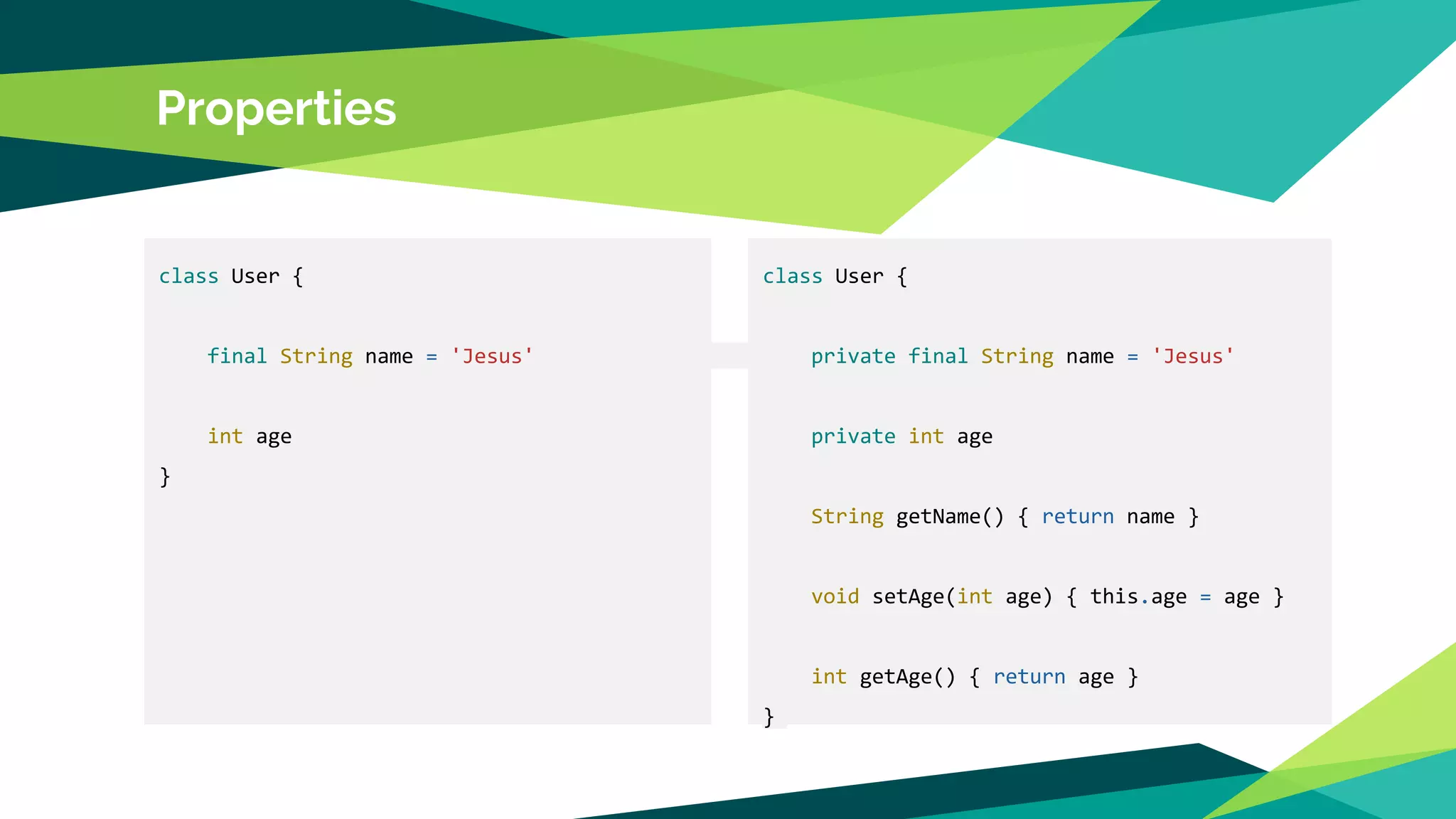



![Closures syntax
{ [parameters -> ] statements }](https://image.slidesharecdn.com/da6hohynt2hmt7v77ekq-signature-d9632c9f10e8b60ec43ad959cf7184c09dee865f14b2b7d2fcbac1db1f1a3025-poli-160517190211/75/Groovy-65-2048.jpg)
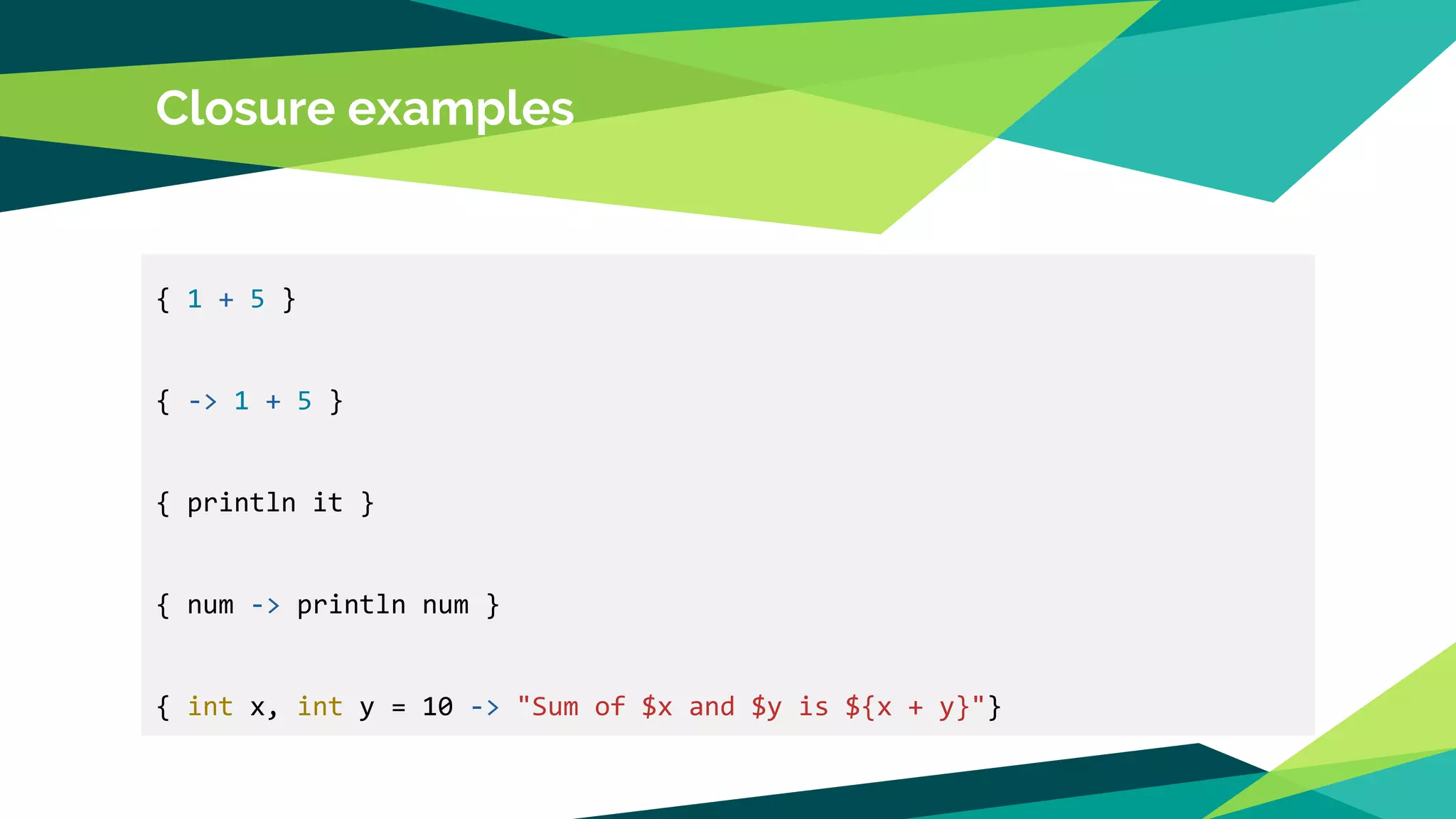
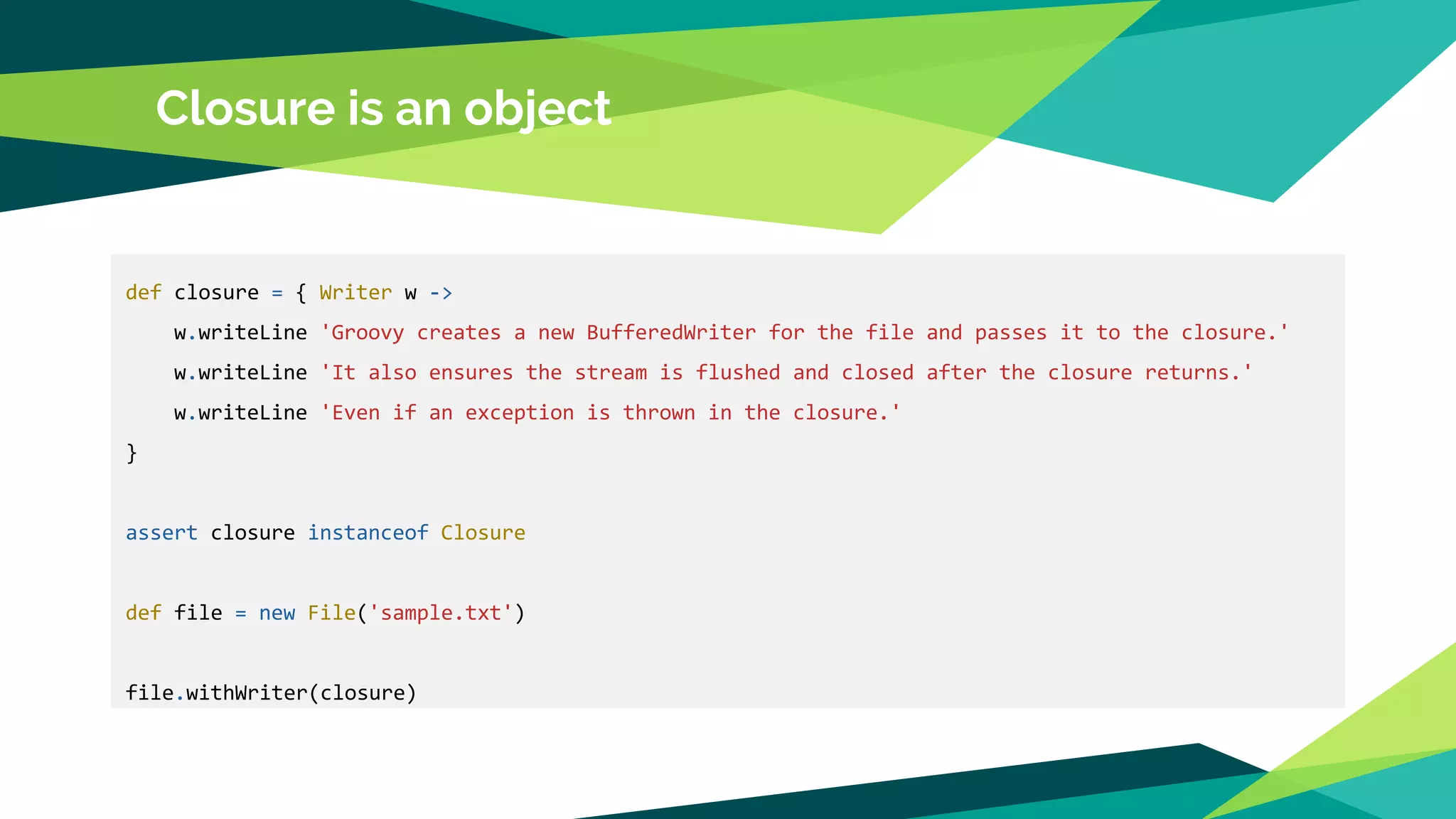

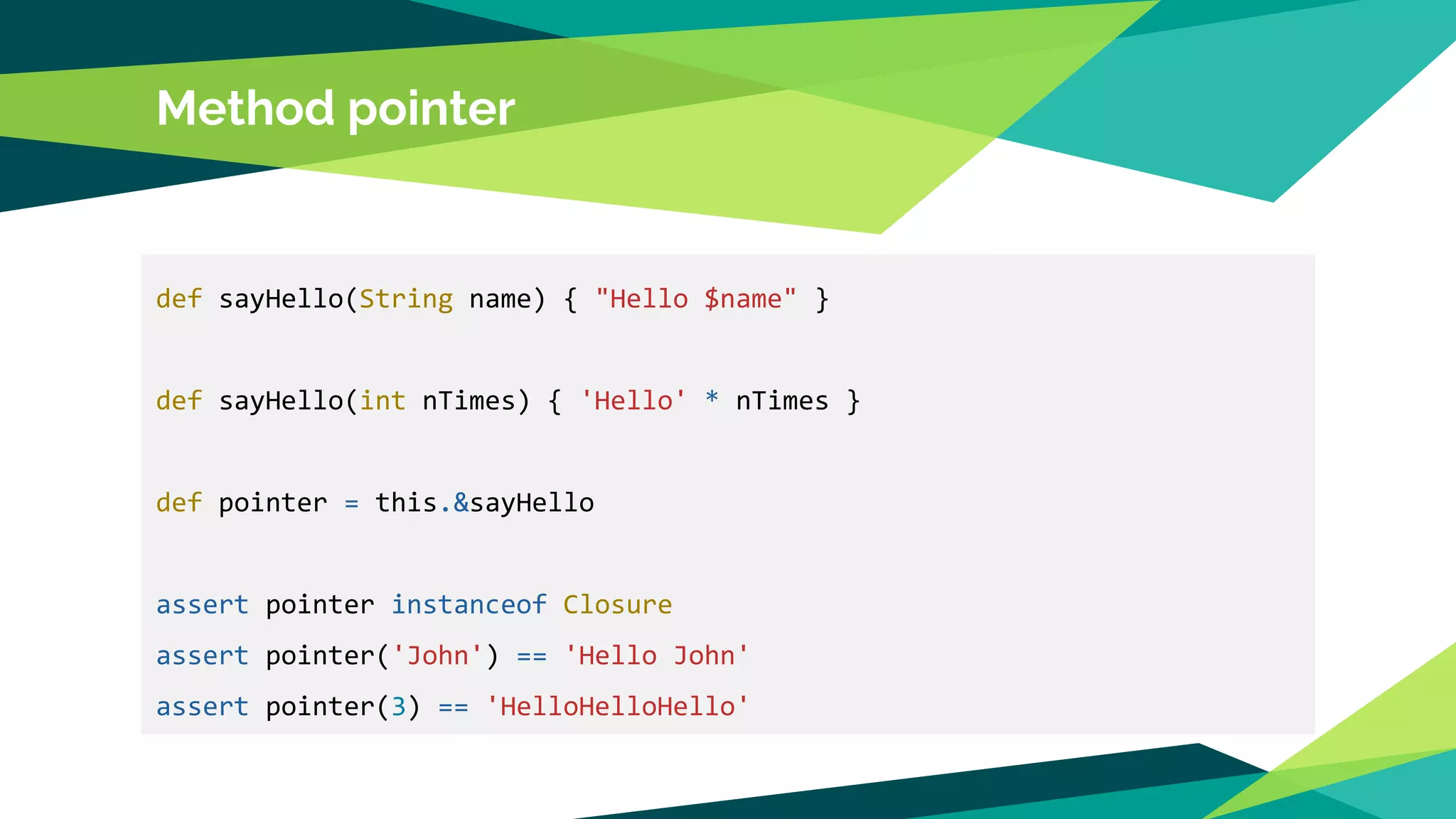
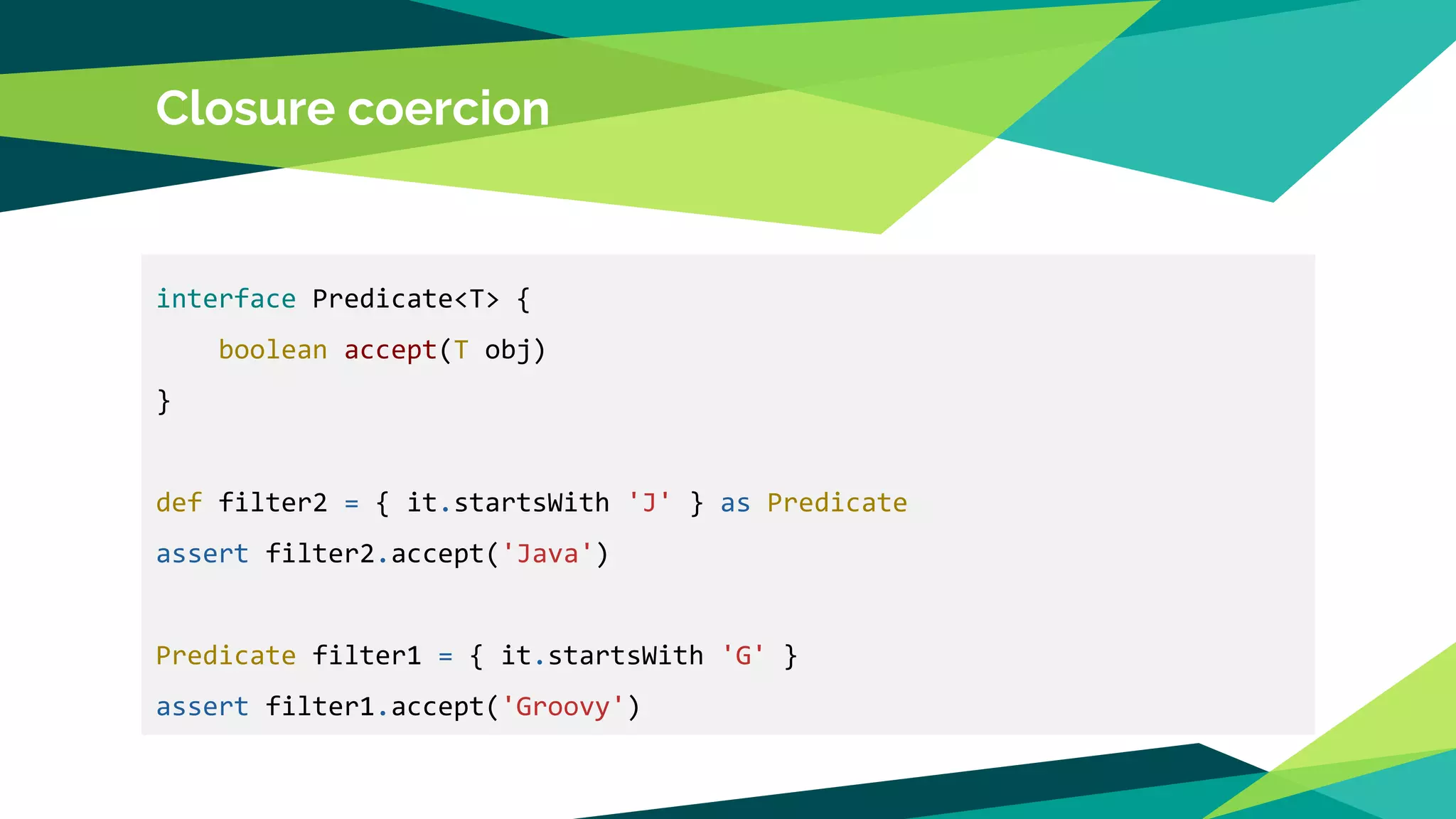
![Methods accepting a SAM type
static <T> List<T> filter(List<T> source, Predicate<T> predicate) {
source.findAll { predicate.accept(it) }
}
assert filter(['Java', 'Groovy'], { it.contains 'G' }) == ['Groovy']
assert filter(['Java', 'Groovy']) { it.contains 'G' } == ['Groovy']](https://image.slidesharecdn.com/da6hohynt2hmt7v77ekq-signature-d9632c9f10e8b60ec43ad959cf7184c09dee865f14b2b7d2fcbac1db1f1a3025-poli-160517190211/75/Groovy-71-2048.jpg)
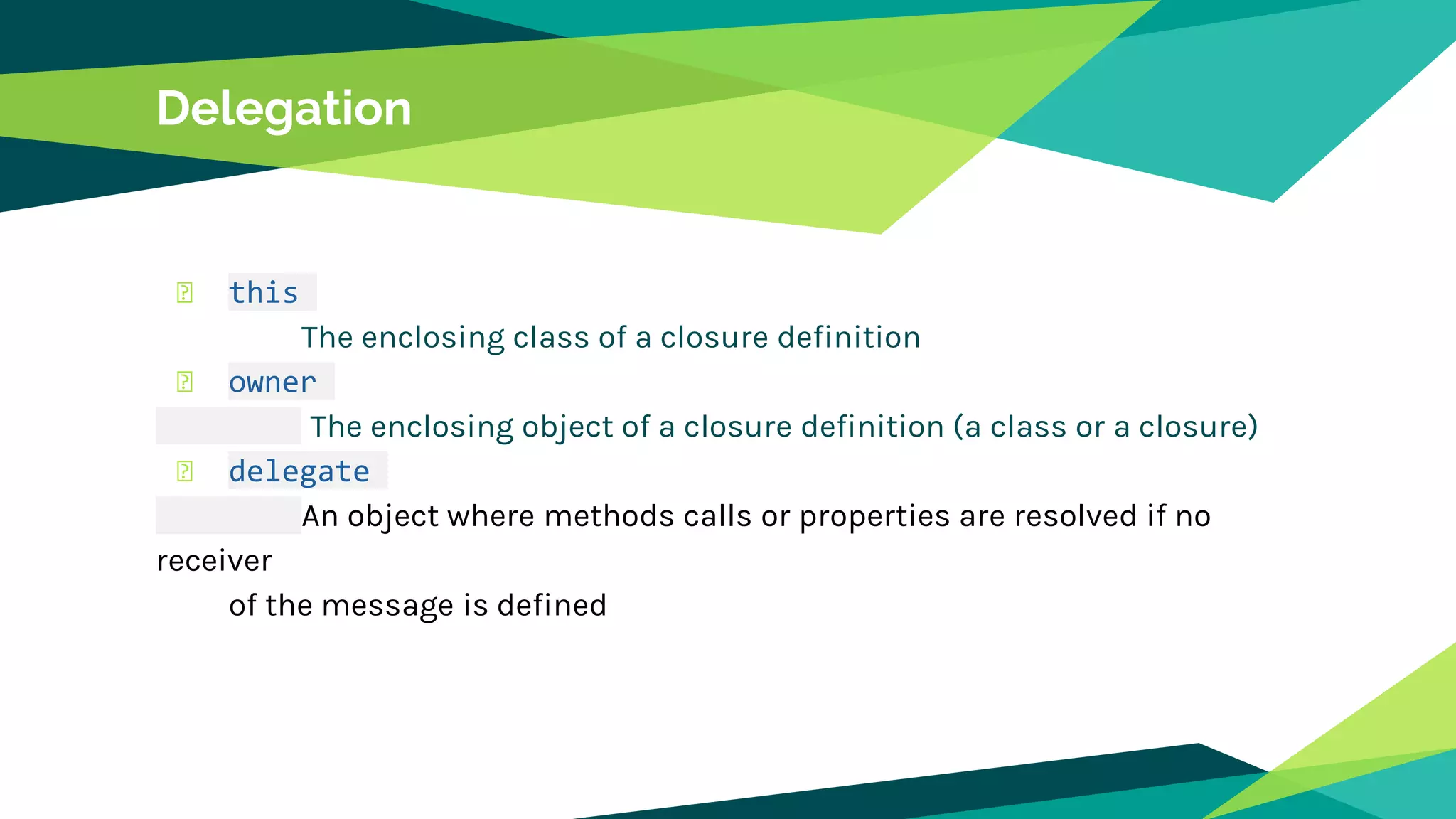
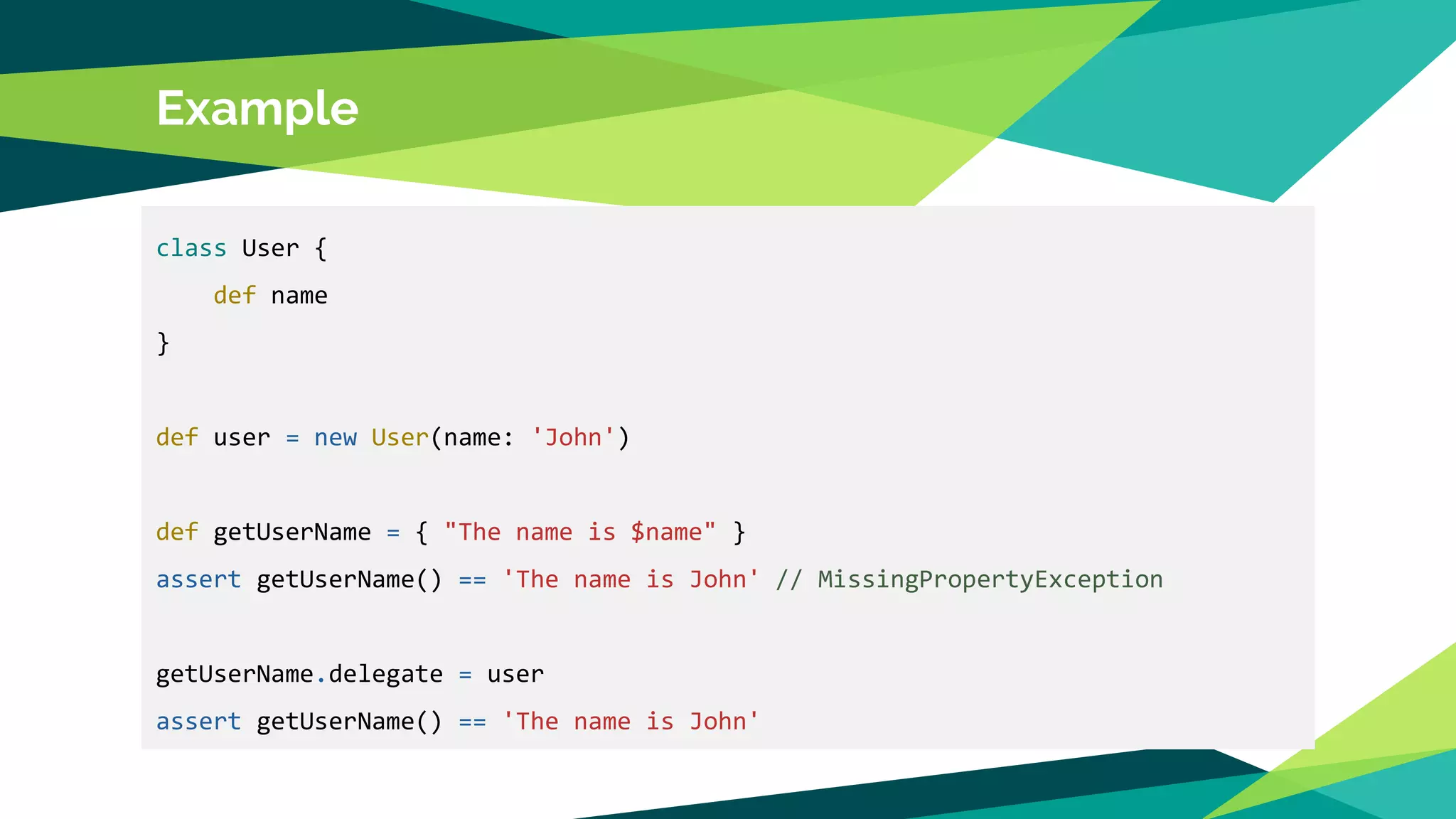
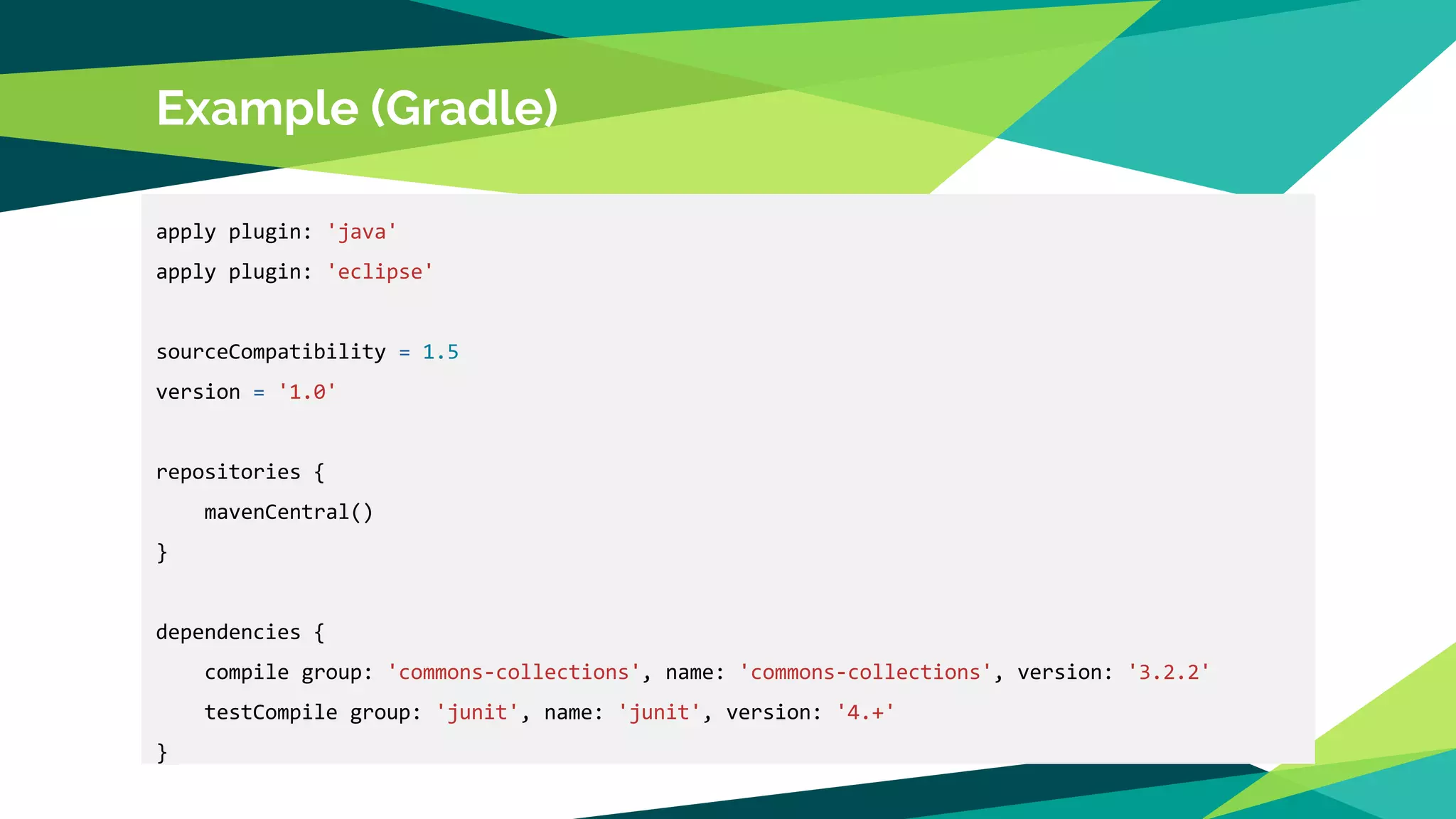

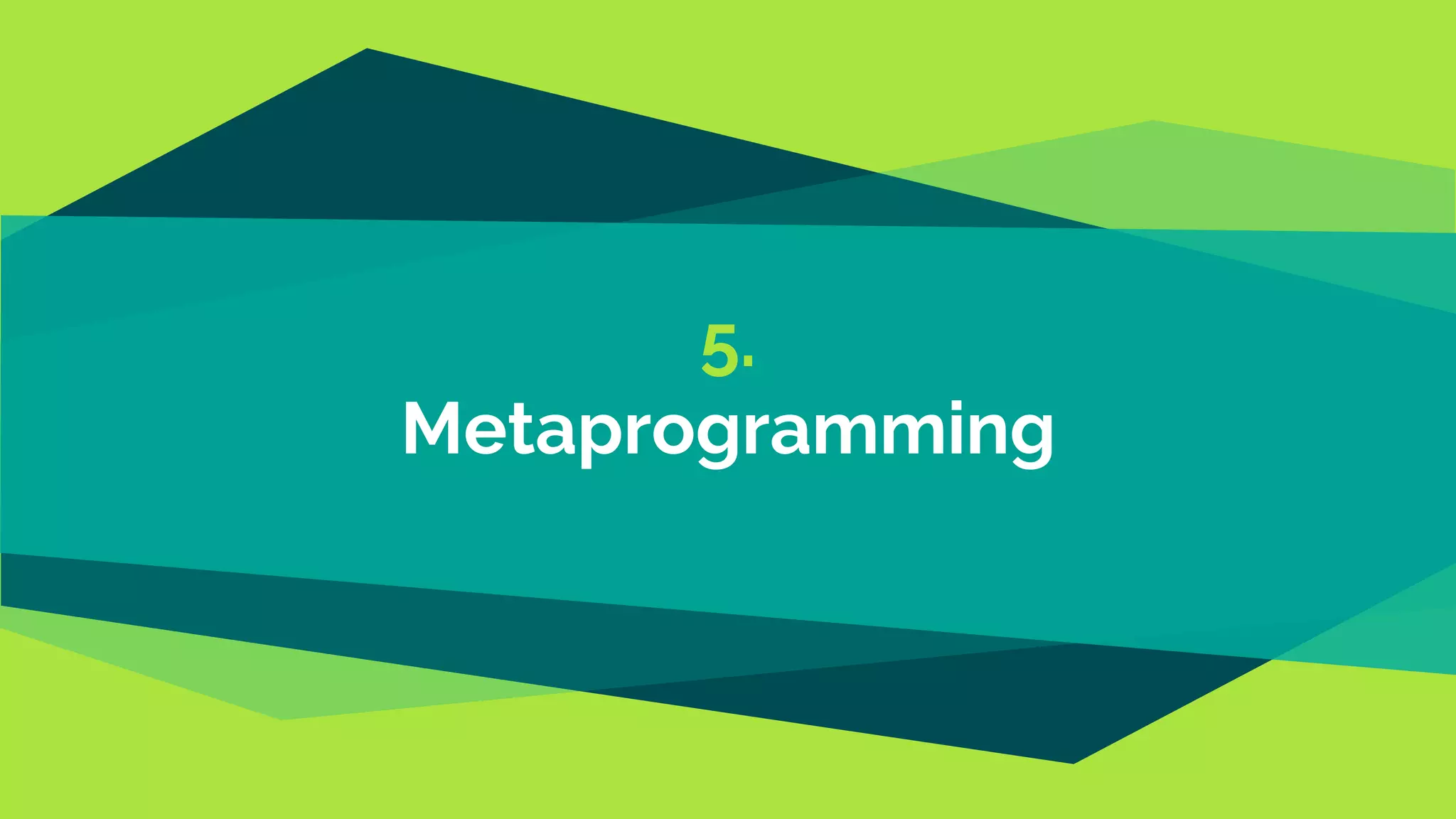


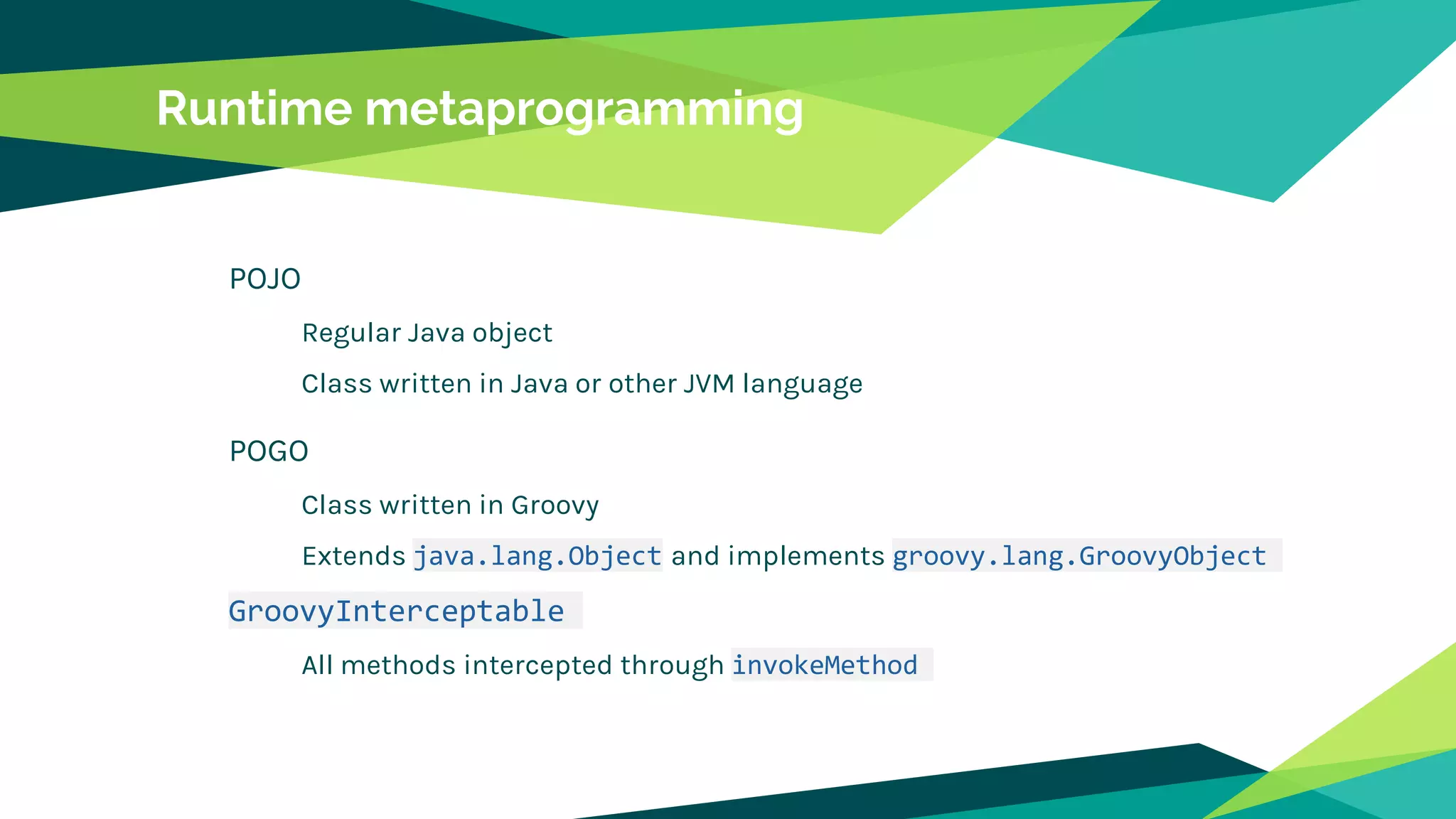
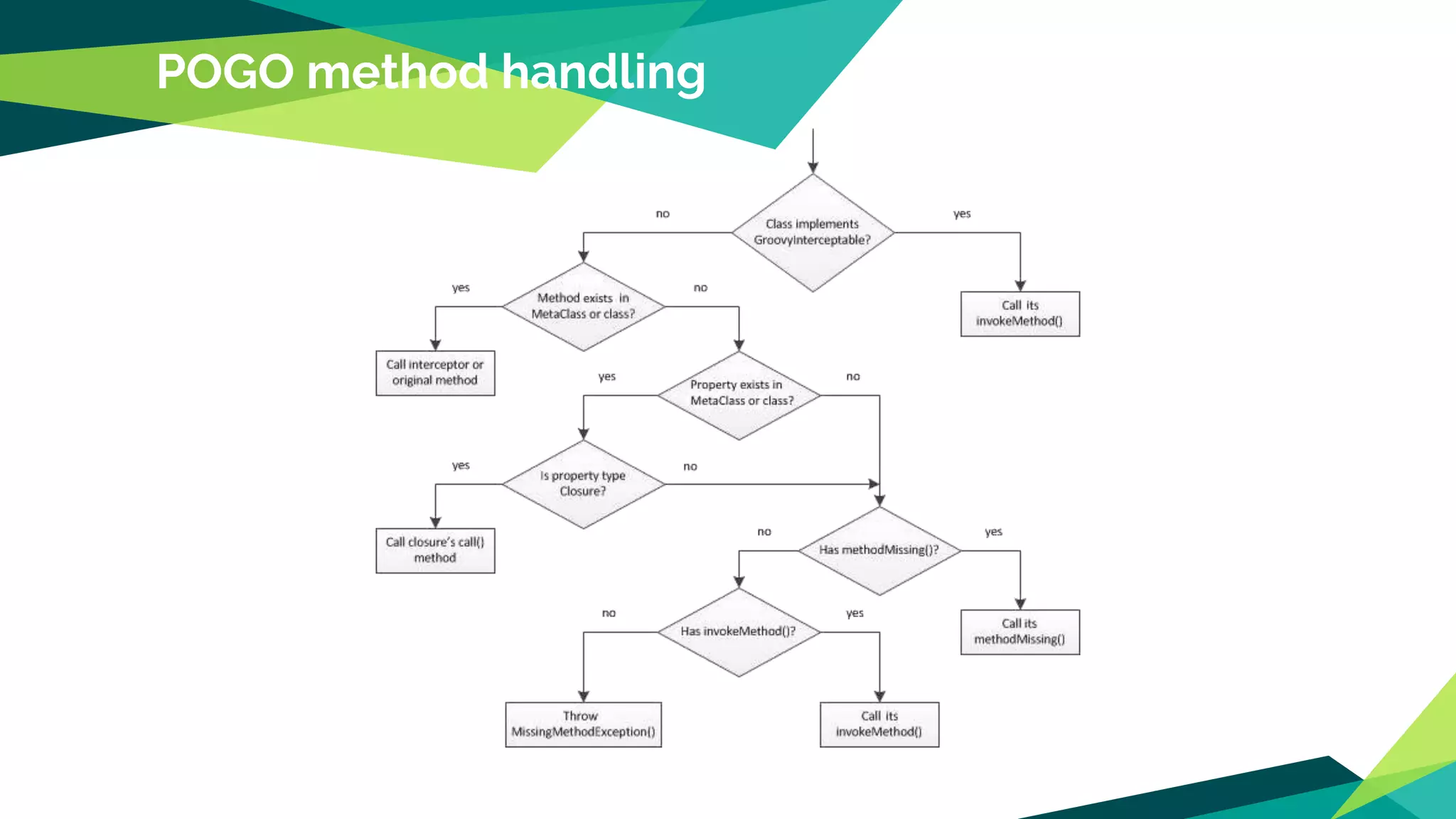
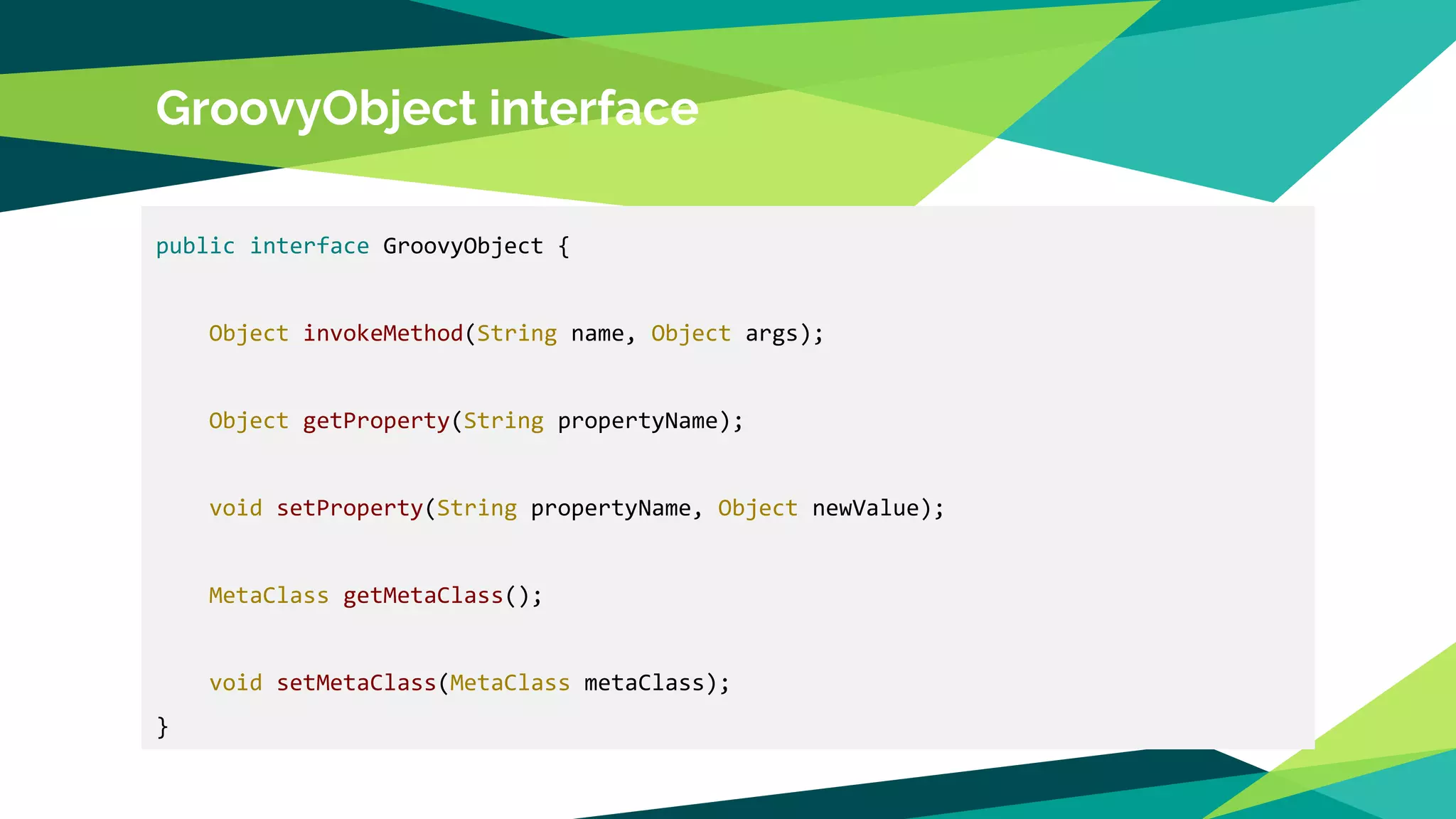
![invokeMethod
class InvokeMethodExample implements GroovyInterceptable {
def existingMethod() { 'existingMethod()' }
def invokeMethod(String name, Object args) {
def m = metaClass.getMetaMethod(name, *args)
if (!m) return "Handle unknown method: $name($args)"
return "Intercepted: ${m.invoke(this, *args)}"
}
}
def obj = new InvokeMethodExample()
assert obj.existingMethod() == 'Intercepted: existingMethod()'
assert obj.newMethod(true) == 'Handle unknown method: newMethod([true])'](https://image.slidesharecdn.com/da6hohynt2hmt7v77ekq-signature-d9632c9f10e8b60ec43ad959cf7184c09dee865f14b2b7d2fcbac1db1f1a3025-poli-160517190211/75/Groovy-82-2048.jpg)
![methodMissing
class User {
def methodMissing(String name, def args) {
if (name.startsWith("findBy")) {
def field = name[6].toLowerCase() + name[7..-1]
return "Looking for a user by $field=${args.first()}"
} else
throw new MissingMethodException(name, this.class, args)
}
}
def user = new User()
assert user.findByFirstName('John') == 'Looking for a user by firstName=John'
assert user.findByAge(30) == 'Looking for a user by age=30'](https://image.slidesharecdn.com/da6hohynt2hmt7v77ekq-signature-d9632c9f10e8b60ec43ad959cf7184c09dee865f14b2b7d2fcbac1db1f1a3025-poli-160517190211/75/Groovy-83-2048.jpg)

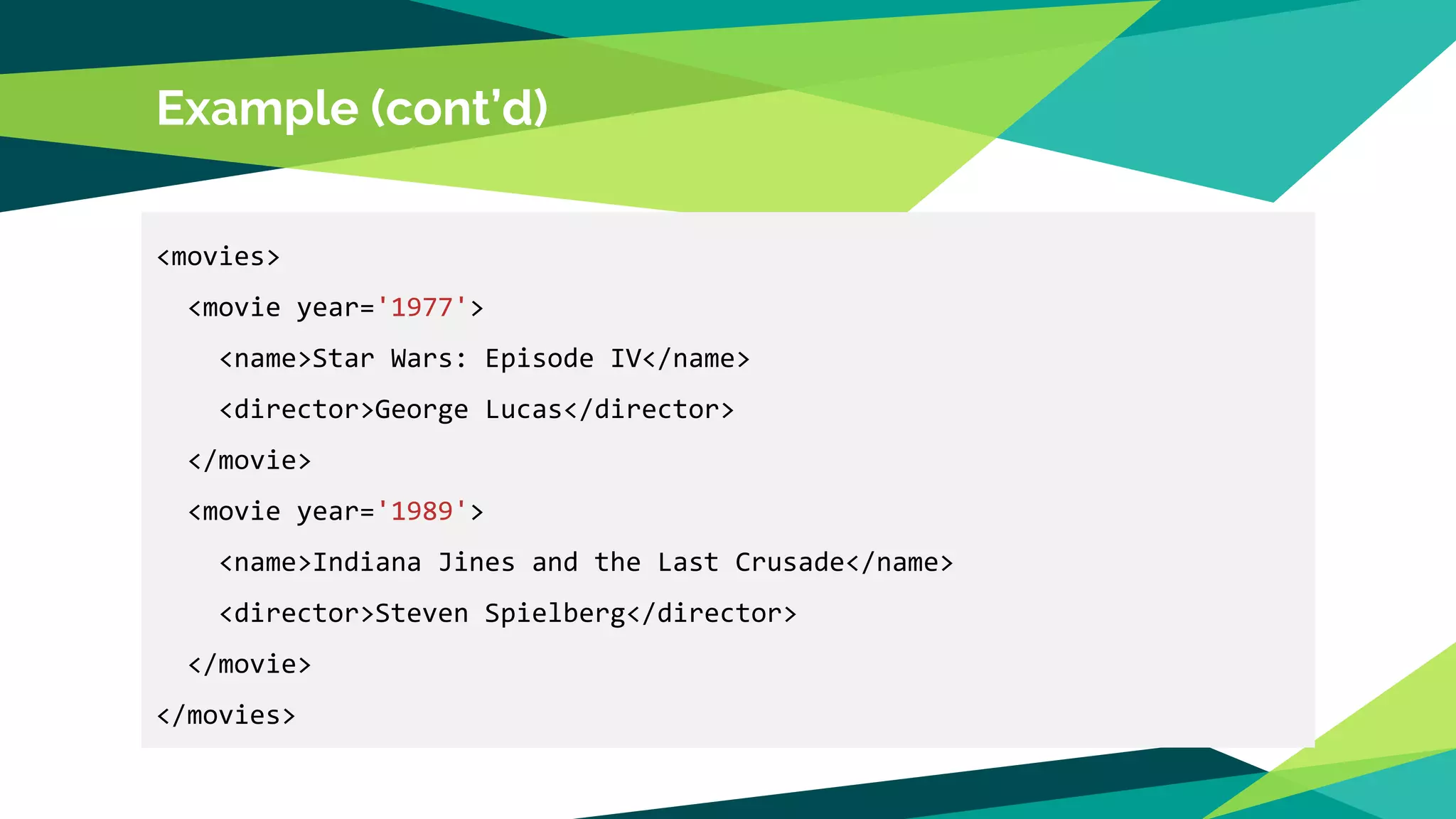
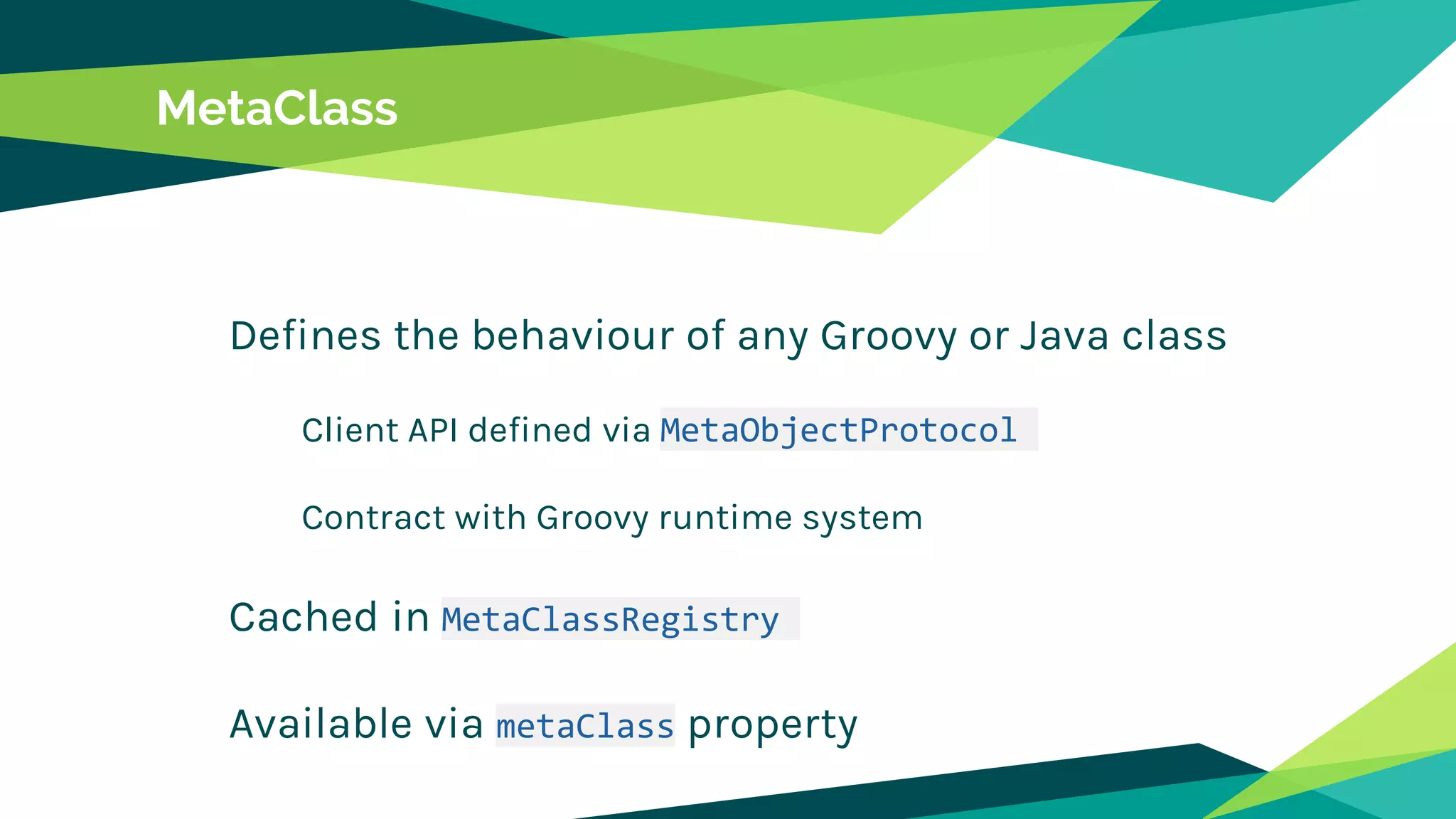
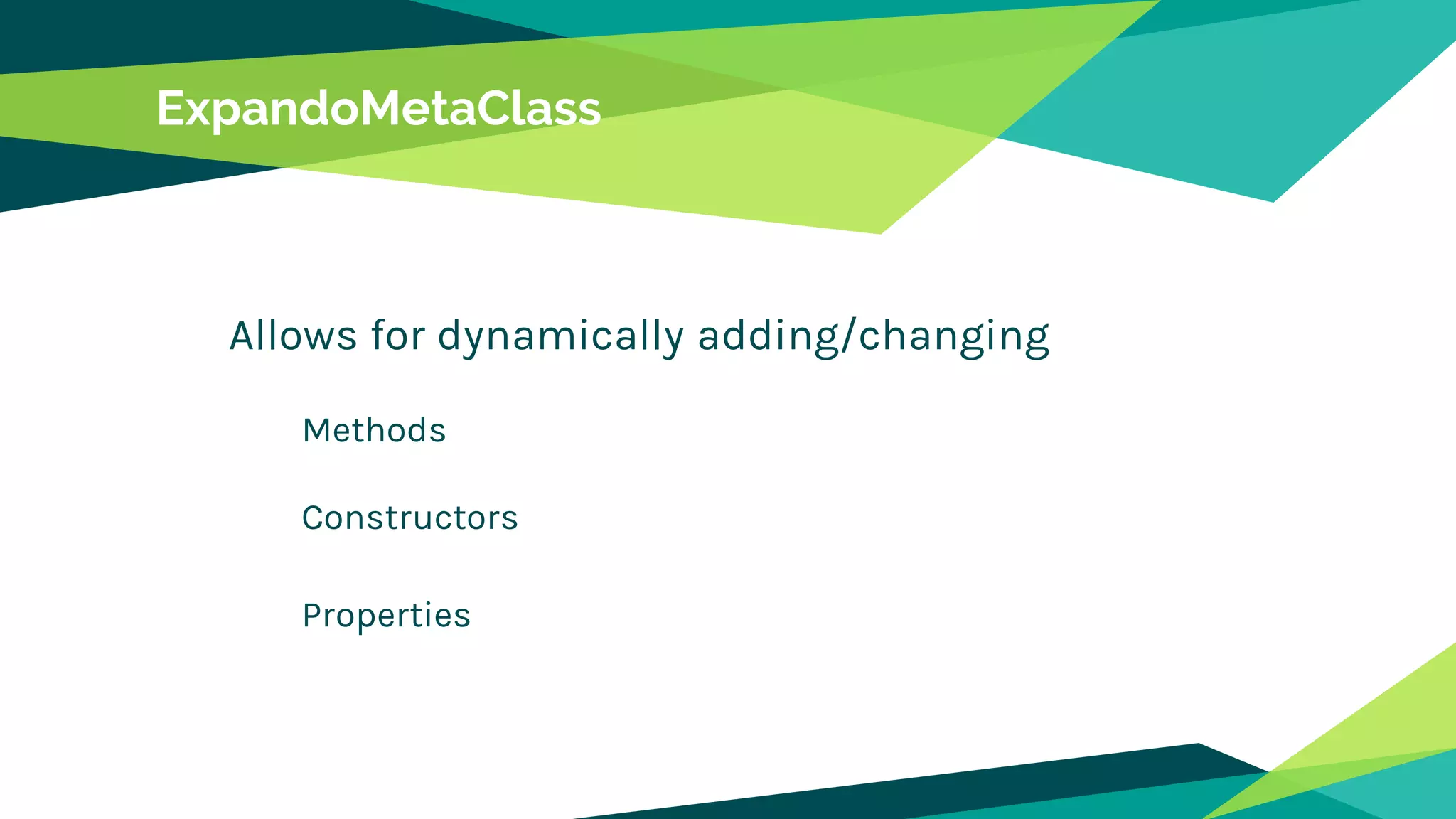




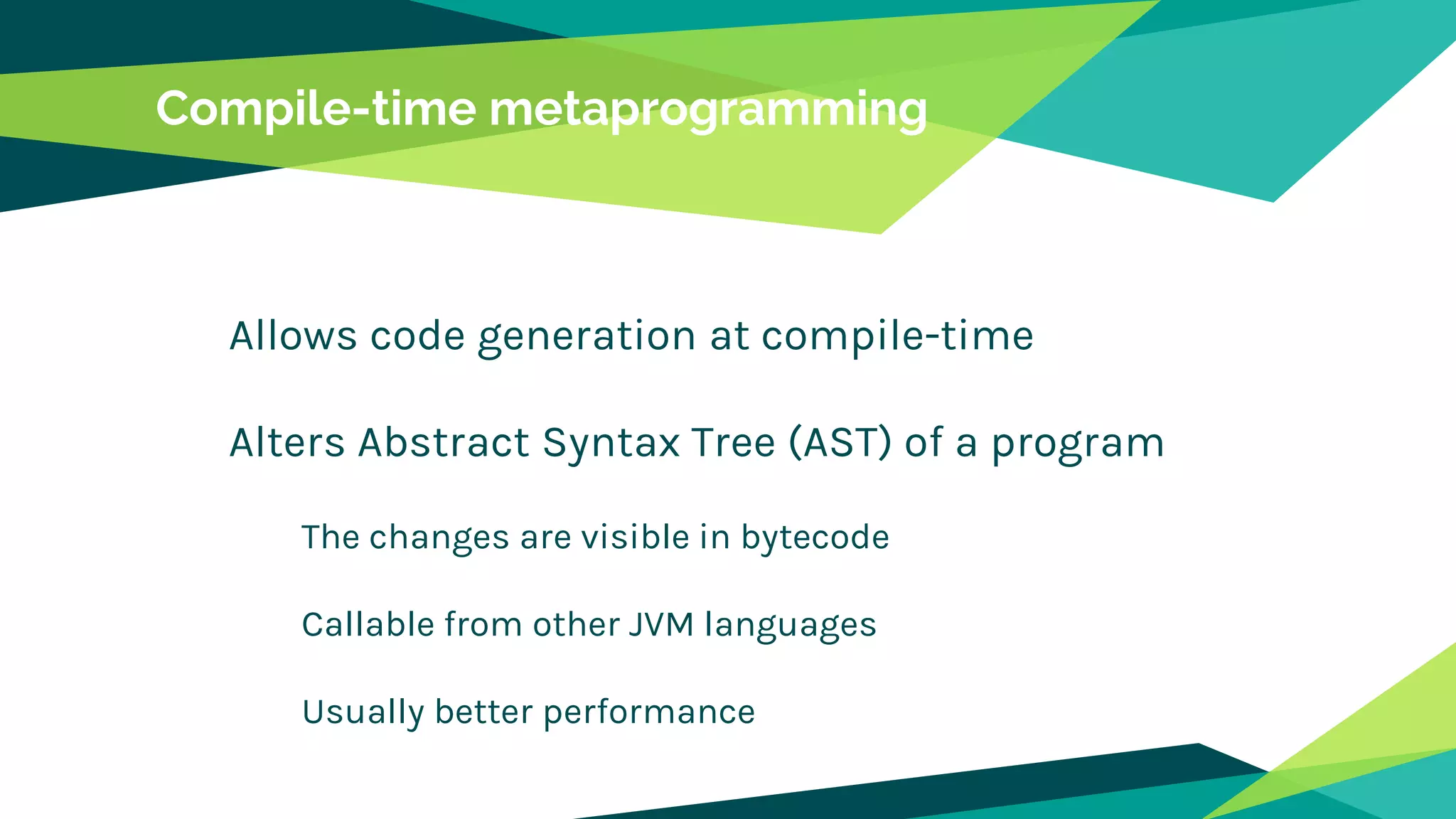

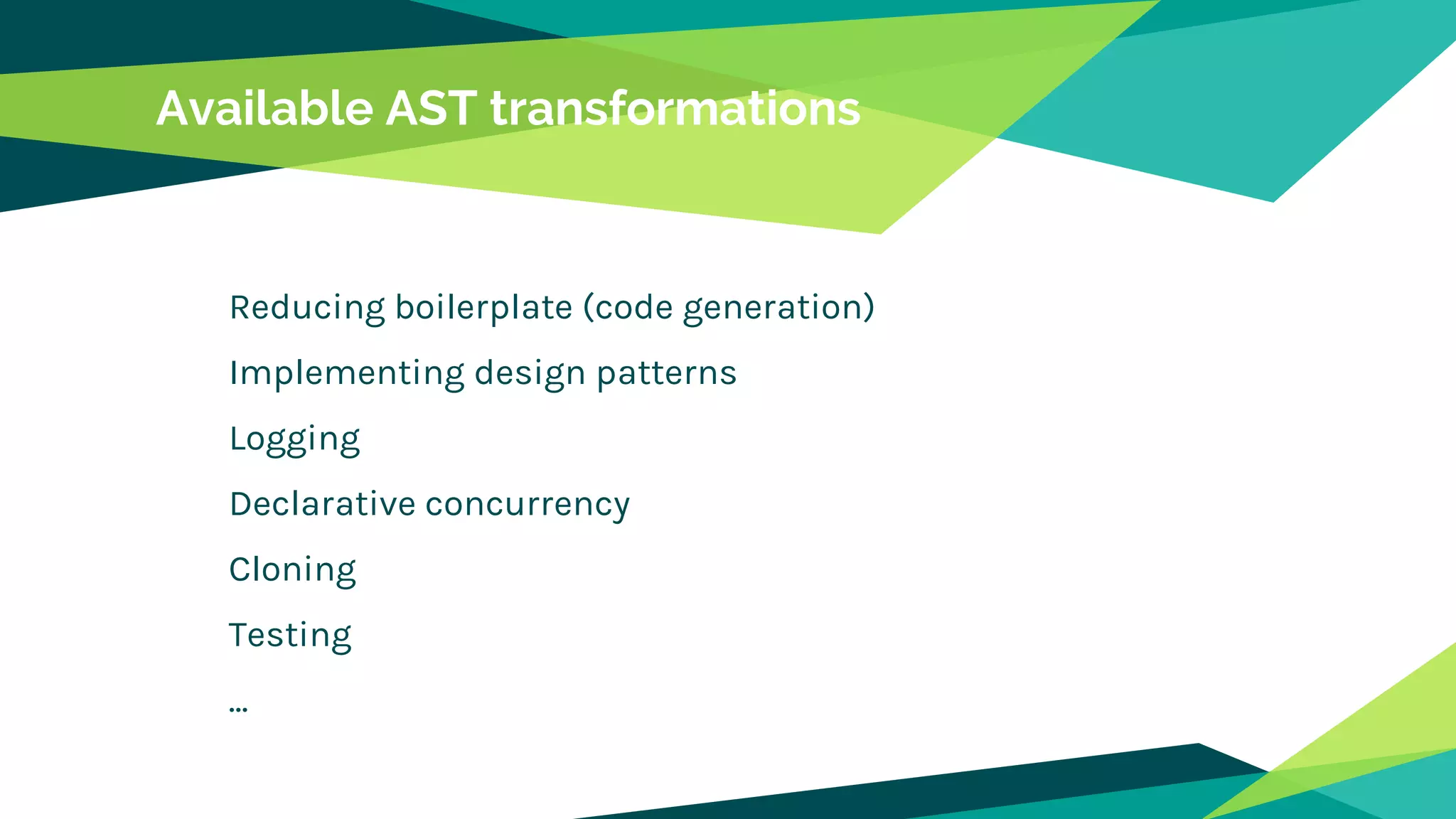
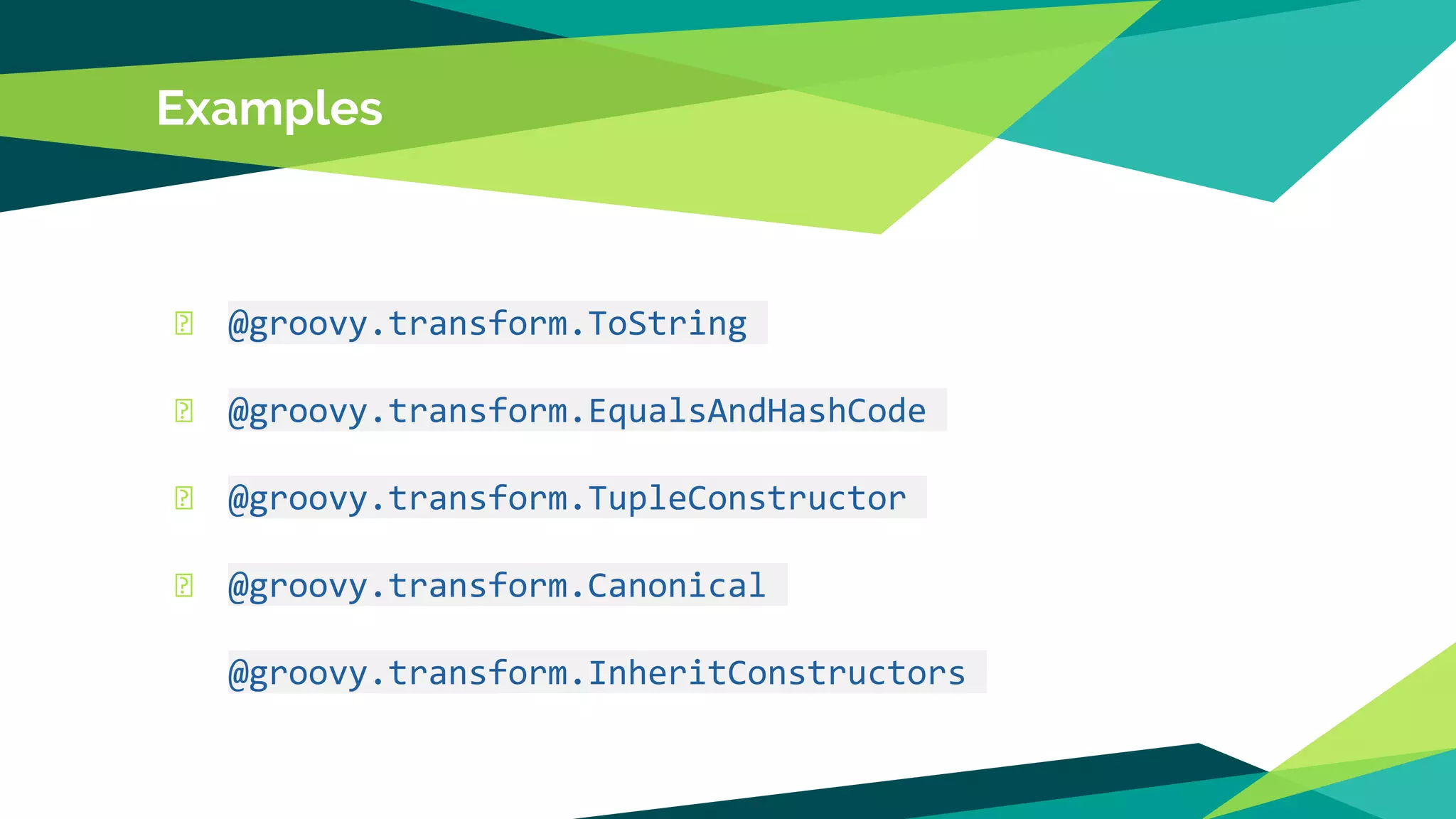
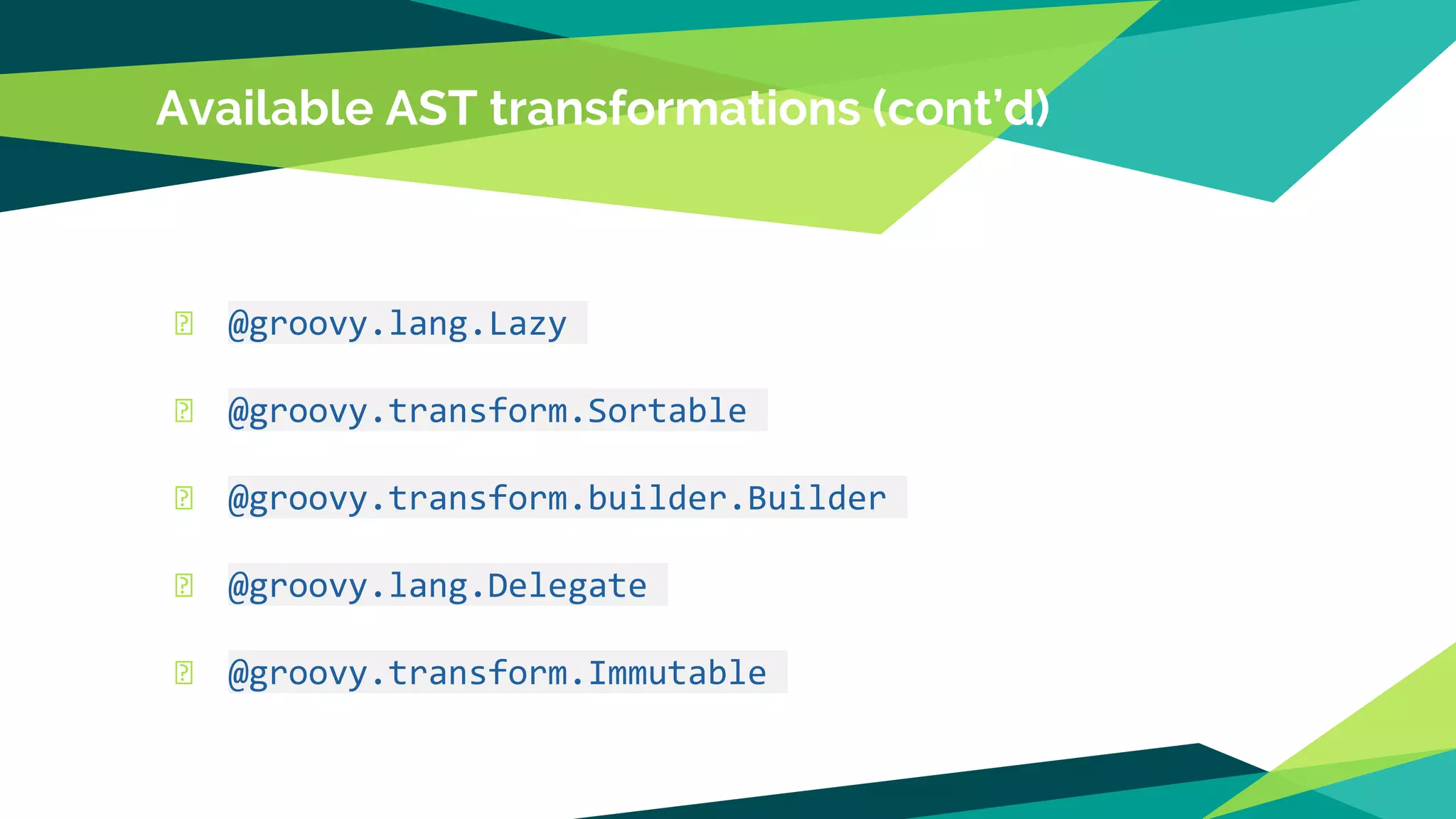


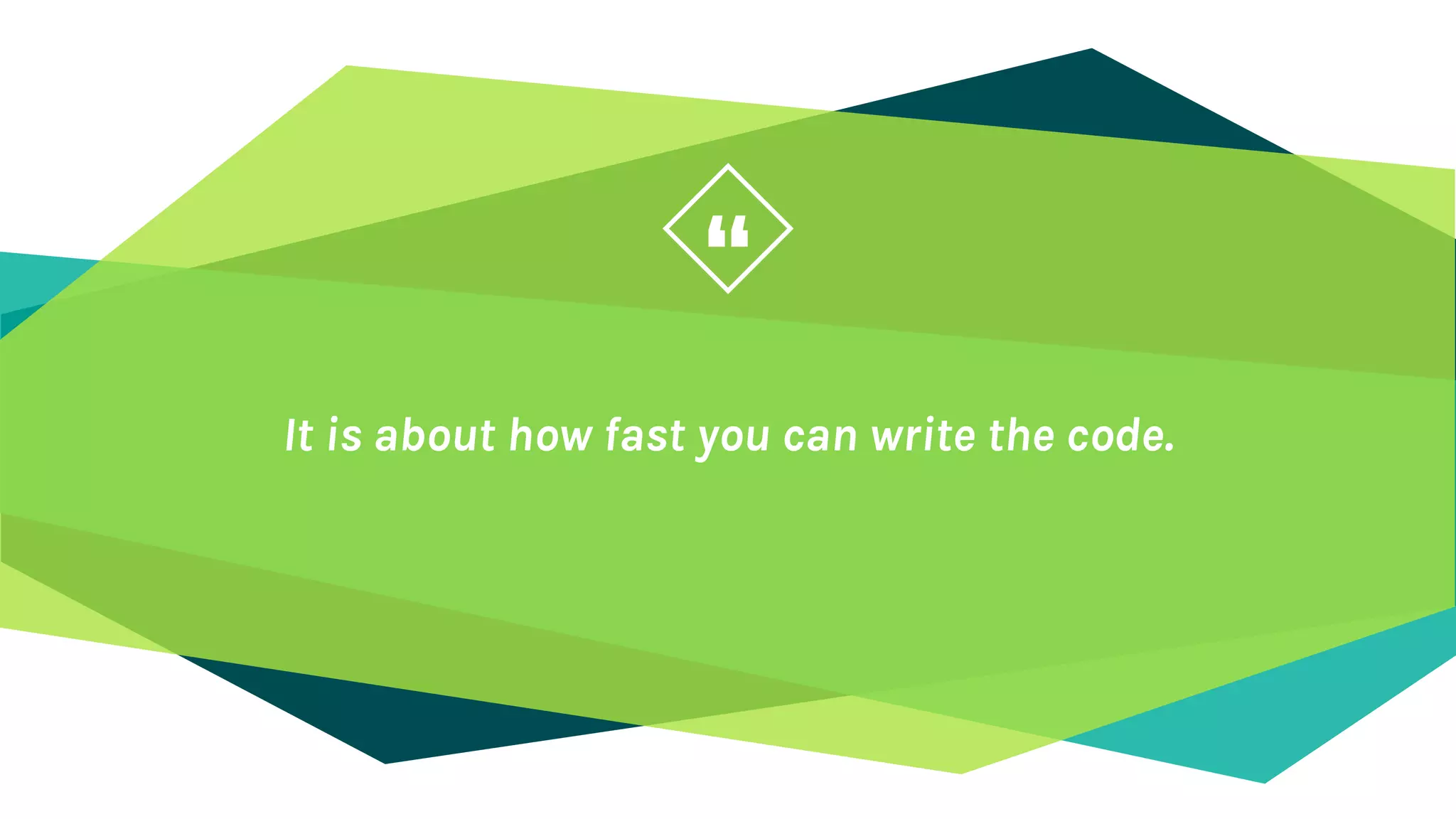
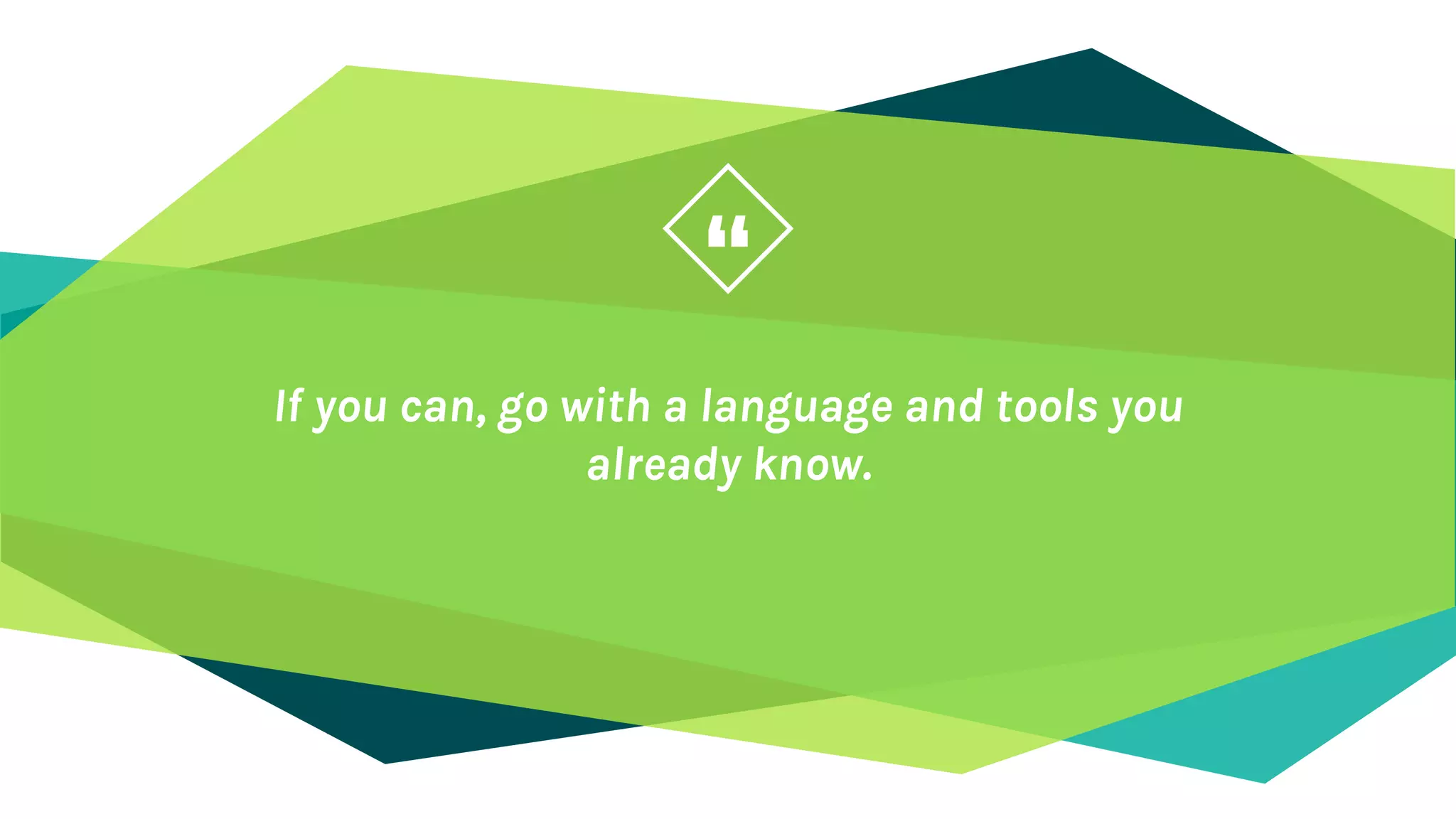
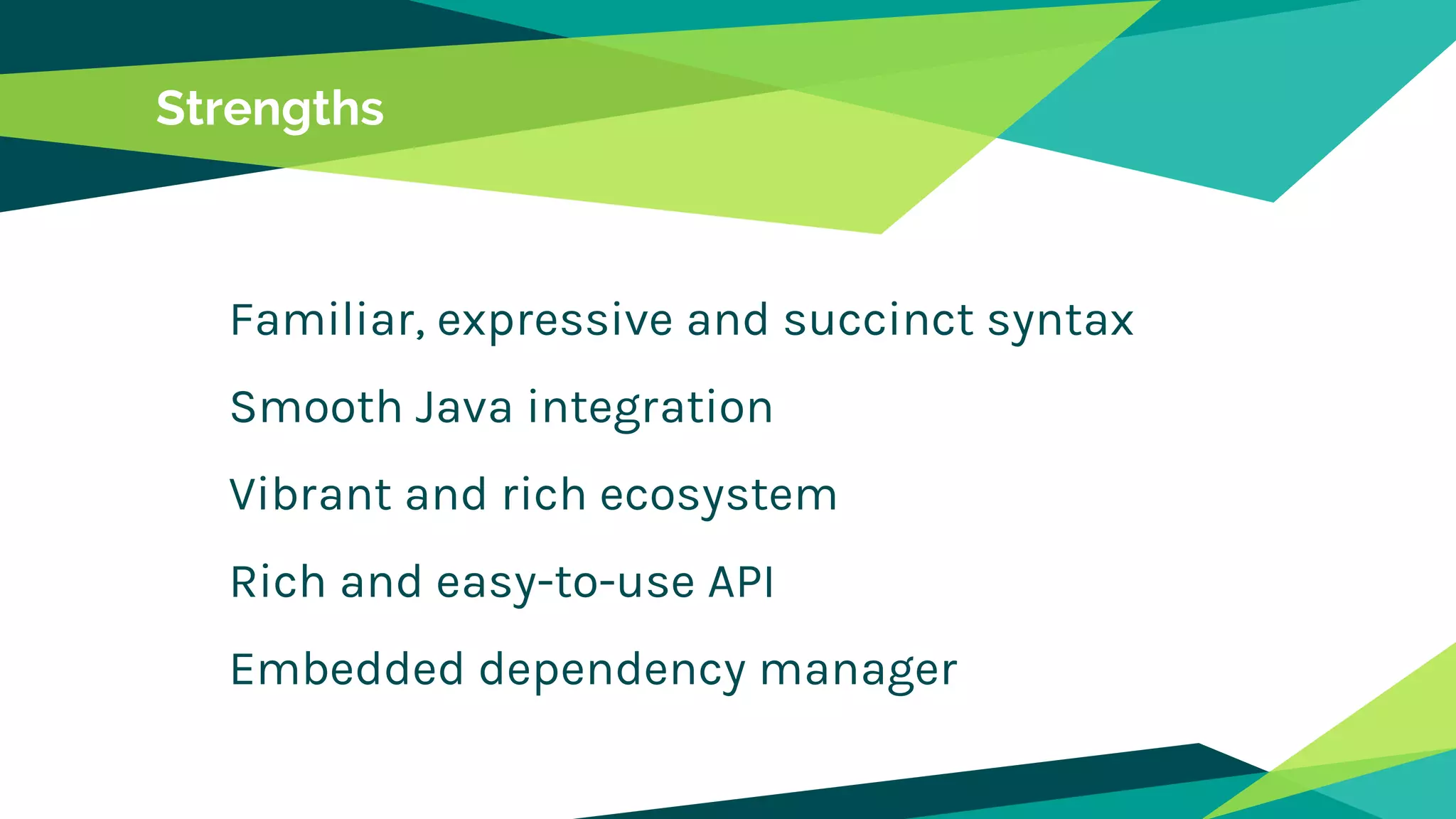

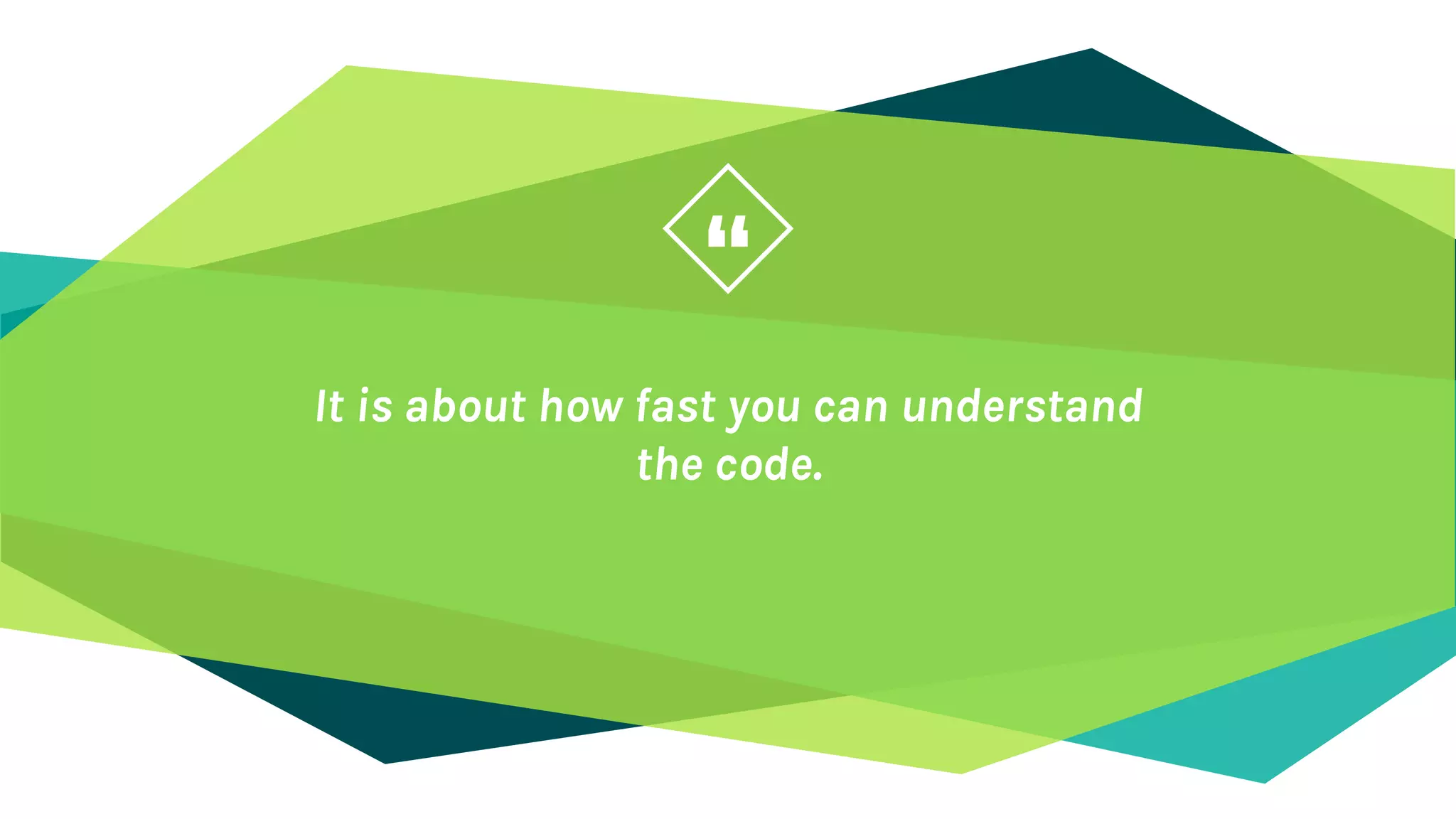
![What does this code do?
def process(def arg1, def arg2, def arg3) {
[arg1, arg2, arg3].inject('') { x, y ->
if (y <= 0) return "${x}00"
if (y > 255) return "${x}ff"
def s = ''
for (int n = y; n > 0; n = n.intdiv(16)) {
int r = n % 16
s = r < 10 ? r + s : "${(char) (((int) 'A') - 10 + r)}$s"
}
s.length() == 1 ? "${x}0$s" : "$x$s"
}
}](https://image.slidesharecdn.com/da6hohynt2hmt7v77ekq-signature-d9632c9f10e8b60ec43ad959cf7184c09dee865f14b2b7d2fcbac1db1f1a3025-poli-160517190211/75/Groovy-104-2048.jpg)
![And now?
String rgbToHex(int r, int g, int b) {
[r, g, b].inject('') { acc, val ->
if (val <= 0) return "${acc}00"
if (val > 255) return "${acc}ff"
def hex = ''
for (int i = val; i > 0; i = i.intdiv(16)) {
int j = i % 16
hex = j < 10 ? j + hex : "${(char) (((int) 'A') - 10 + j)}$hex"
}
hex.length() == 1 ? "${acc}0$hex" : "$acc$hex"
}
}](https://image.slidesharecdn.com/da6hohynt2hmt7v77ekq-signature-d9632c9f10e8b60ec43ad959cf7184c09dee865f14b2b7d2fcbac1db1f1a3025-poli-160517190211/75/Groovy-105-2048.jpg)




